Unlocking growth



Locally Owned Since 1995 JUNE 10JUNE 23, 2024 » $6.00 biz times .com
family business issue BizTimesMilwaukeeBizTimesMilwaukee BizTimesMilwaukeeBizTimesMilwaukee BizTimesMilwaukeeBizTimesMilwaukee BizTimesMilwaukeeBizTimesMilwaukee BizTimesMilwaukeeBizTimesMilwaukee BizTimesMilwaukeeBizTimesMilwaukee BizTimesMilwaukeeBizTimesMilwaukee BizTimesMilwaukeeBizTimesMilwaukee BizTimesMilwaukeeBizTimesMilwaukee BizTimesMilwaukeeBizTimesMilwaukee BizTimesMilwaukeeBizTimesMilwaukee BizTimesMilwaukeeBizTimesMilwaukee BizTimesMilwaukeeBizTimesMilwaukee BizTimesMilwaukeeBizTimesMilwaukee BizTimesMilwaukeeBizTimesMilwaukee BizTimesMilwaukeeBizTimesMilwaukee BizTimesMilwaukeeBizTimesMilwaukee BizTimesMilwaukeeBizTimesMilwaukee BizTimesMilwaukeeBizTimesMilwaukee BizTimesMilwaukeeBizTimesMilwaukee BizTimesMilwaukeeBizTimesMilwaukee BizTimesMilwaukeeBizTimesMilwaukee BizTimesMilwaukeeBizTimesMilwaukee BizTimesMilwaukeeBizTimesMilwaukee BizTimesMilwaukeeBizTimesMilwaukee BizTimesMilwaukeeBizTimesMilwaukee BizTimesMilwaukeeBizTimesMilwaukee
AUGUST 21, 2024
BROOKFIELD CONFERENCE CENTER
7:30-8:00 AM – Networking & Breakfast 8:00-10:00 AM – Welcome & Program 10:20-12:00 PM – Breakout Sessions
SEIZE YOUR MOMENT
Attend BizTimes Media’s annual Women in Business Symposium and leave with actionable insights to apply in your own life and career. Keynote presenter Jenny Just will start the program with lessons learned on her journey from Brookfield, Wisconsin, to co-founding PEAK6 in 1997 and later launching Poker Power in 2020. PEAK6 started as a proprietary options trading firm and has grown into a multibillion-dollar financial services firm. Started with Just’s daughter Juliette, Poker Power teaches women poker, and by extension, strategic thinking, capital allocation and decision-making skills.
After the keynote, attendees will hear from a panel of business leaders from across southeastern Wisconsin and attend breakout sessions on topics like mental health, entrepreneurship, personal finance, technology and common workplace issues. The morning’s schedule also includes dedicated time to network and the celebration of the 2024 Woman Executive of the Year.
Keynote:
» Jenny Just, Co-Founder & Managing Partner, PEAK6 Investments; Co-Founder, Poker Power
Panel Discussion:
» Gaurie Rodman, Vice President of Real Estate Strategy and Development, Direct Supply (1)
» Melissa Allen, President, Maures Development Group (1)
» Candace Spears, Founder & CEO, Floor23 Digital (1)
» Lyssa Olker, Design Principal, HGA (1)



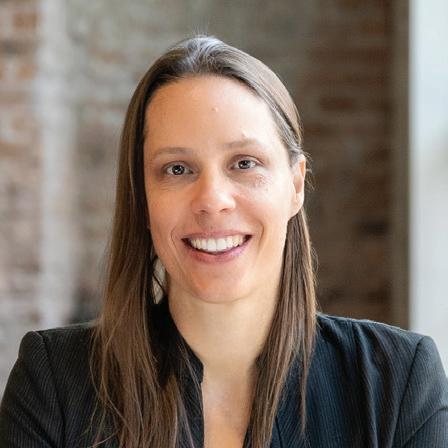

Breakout Sessions:
» Q&A with Meg Kissinger, author “While You Were Out: An Intimate Family Portrait of Mental Illness in an Era of Silence”
» Finding the Middle Ground: How can we bridge the generations in today’s workforce?
» Stories from the entrepreneurial journey, panel discussion with Angela Damiani of Newaukee
» Women and finance
» Self-care strategies that make life a little easier




PRODUCED BY: SUPPORTING SPONSORS: SPONSOR: PRESENTING SPONSOR: PARTNER: 1 2 3 4
REGISTER TODAY! BIZTIMES.COM/WOMEN
Downtown Milwaukee || Mequon Brook eld Racine Franklin ||






270 Unit Multi-Family Construction Facility $50,500,000 DEAL WIN HIGHLIGHT TOWNBANK.US/YOURPARTNER BizTimes Milwaukee (ISSN 1095-936X & USPS # 017813) Volume 30, Number 4, June 10June 23, 2024. BizTimes Milwaukee is published bi-weekly, except monthly in January, February, March, April, July, August, November and December by BizTimes Media LLC at 126 N. Jefferson St., Suite 403, Milwaukee, WI 53202-6120, USA. Basic annual subscription rate is $108. Single copy price is $6. Back issues are $9 each. Periodicals postage paid at Milwaukee, WI and additional mailing offices. POSTMASTER: Send all UAA to CFS. NON-POSTAL AND MILITARY FACILITIES: Send address corrections to BizTimes Milwaukee, 126 N. Jefferson St., Suite 403, Milwaukee, WI 53202-6120. Entire contents copyright 2024 by BizTimes Media LLC. All rights reserved. LOCALLY OWNED FOR 29 YEARS biz times .com 18 Unlocking growth: Family businesses walk fine line between metrics and culture 4 Leading Edge 4 NOW BY THE NUMBERS 5 ON THE JOB WITH… Smith Brothers Junk Removal 6 REV UP – Rownd 7 THE FRANCHISEE – Omar Simmons, The Good Feet Store 8 MEET THE WISCONSIN 275 –George Cullen and Jeannie Cullen Schultz, JP Cullen 9 BIZTRACKER COFFEE BREAK – Kelly Armstrong, Kenosha Innovation Neighborhood 10 Biz News 10 How Anthony and Teresa Machi launched a thriving real estate investment business 12 MADE IN MILWAUKEE –Denali Ingredients 14 Real Estate 32 Meet the Notable Leaders in Arts & Entertainment 36 Strategies 36 HUMAN RESOURCES – Beth Ridley 38 FAMILY BUSINESS – David Borst 40 MARKETING – Scott Seroka 41 TIP SHEET 44 Biz Connections 44 PAY IT FORWARD – Angela Roach, Fiserv 46 GLANCE AT YESTERYEAR COMMENTARY 47 5 MINUTES WITH … UWM Connected Systems Institute executive director Joe Hamann Contents » JUNE 10 - JUNE 23, 2024 Special Reports 18 Family Business In addition to the cover story, coverage includes a look at the pending sale of an iconic, family-operated Milwaukee nightclub that serves as a cautionary tale in failure to establish a succession plan. 28 Business Valuation & Succession Includes a report on the ingredients for a successful succession plan and a look at the importance of working capital adjustment in the sale of a business. biztimes.com / 3 COVER STORY



Campbell’s to invest millions in Franklin facility, create dozens of jobs
By Ashley Smart, staff writer
Camden, New Jersey-based Campbell Soup Co. will invest $8 million to expand production capacity for tortilla chips at its Franklin plant, located at 4625 W. Oakwood Park Drive in the Franklin Business Park.
chain of the future.”
BY THE NUMBERS



The expansion, announced in a recent press release by the company, will create 40 new jobs at the Franklin facility. The $8 million investment is part of a supply chain optimization plan for Campbell’s, which includes the closure of a plant in Jeffersonville, Indiana, and $230 million in investments through 2026 at four plants in the United States. Those plants include Franklin, Wisconsin; Hanover, Pennsylvania; Maxton, North Carolina; and Richmond, Utah.
“To fuel growth and transform our manufacturing and distribution network, we must invest and further strengthen our supply chain,” said Dan Poland, chief supply chain officer at Campbell’s. “By leveraging our best-in-class inhouse capabilities combined with the expertise of trusted manufacturing partners, we will continue to make the highest quality products with a more agile, flexible and cost-effective manufacturing network. We continue to evaluate optimization opportunities across the network to build our supply
The Franklin plant opened in 1998 and employs more than 600 people. The 300,000-square-foot plant is currently used to make goldfish crisps (cheddar, salt and vinegar, and sour cream and onion flavored) and pretzels (15 varieties of Snack Factory pretzel crisps and 10 varieties of Hanover pretzels).
Beginning in late July, the Franklin plant will also manufacture five types of tortilla chips.
“These actions are another significant step in transforming Campbell’s supply chain into a competitive advantage,” according to the company’s recent announcement. “The company is investing in its best-in-class manufacturing sites, leveraging its network of leading co-manufacturing partners, and closing inefficient sites and shifting production to more modern and effective plants.”
The Franklin facility was originally built for Gardetto’s, which was sold to General Mills in 1999. After the sale of Gardetto’s, Nannette “Nan” Gardetto retained ownership of the Franklin facility and launched Baptista’s Bakery there, which was sold to Charlotte, North Carolina-based Snyder’s Lance Inc. in 2014, which was acquired by Campbell Soup Co. in 2018.
4 / BizTimes Milwaukee JUNE 10, 2024 Leading Edge
BIZTIMES DA ILY – The day’s most significant news → biztimes.com/subscribe
Campbell Soup Co.’s Franklin plant, located at 4625 W. Oakwood Park Drive.
Oak Creek added in 2023, the most of any municipality in southeastern Wisconsin.
RESIDENTS
CAMPBELL’S
1,094
ON THE JOB WITH…
Smith Brothers Junk Removal
By Maredithe Meyer, staff writer
What initially started as a high school summer job for brothers Tevin, Thomas, Trevor and Trenton Smith has since evolved into a fullscale junk removal operation, with commercial and residential clients across southern Wisconsin.
Officially launched in 2019, Milwaukee-based Smith Brothers Junk Removal handles everything from old furniture and mattresses to office equipment and commercial freezers. The company’s recent expansion into demolition has allowed its seven-person
crew to haul away and dispose of larger items, including a church organ and a 5,000-pound bank safe as well as in-home hot tubs, outdoor playsets and construction materials.
“We’re living in a world of excess with new and bright and shiny things but getting those things, on the other hand, you’re going to need somewhere, somehow to get rid of those old and dusty and unused things – that’s where we come in,” said Tevin Smith, chief executive officer. n



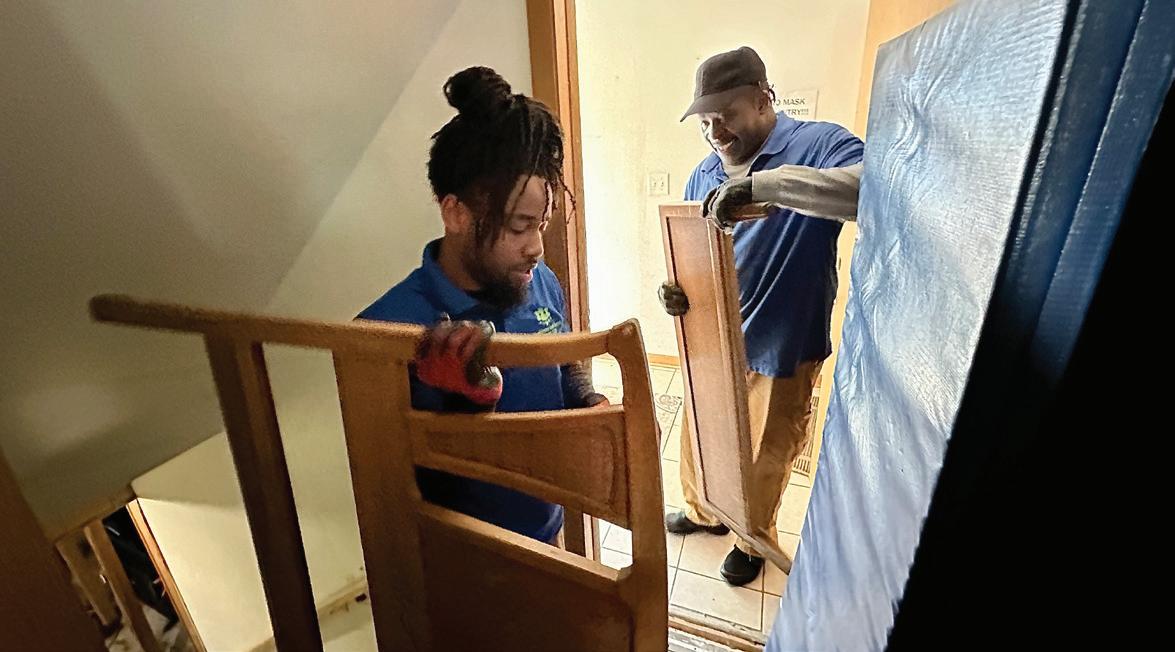
Banks and Roberts worked together to haul heavy items, like this wooden headboard, up the basement stairs. 1 2 2 4 5 3 3 6 4 5 6 1
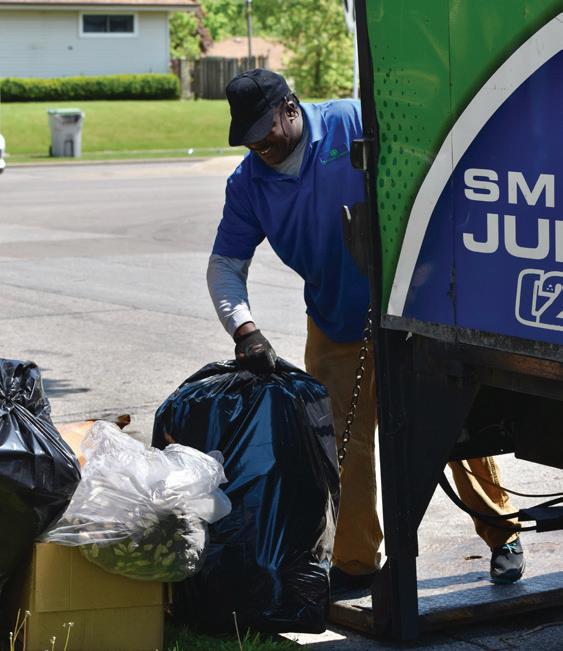

biztimes.com / 5
One recent Smith Brothers project was removing old furniture and trash from the basement of a senior living group home on Milwaukee’s far northwest side.
Antonio Roberts lifts bags of trash onto the truck bed.
Ezekiel Banks fits an old armchair through the basement door on the way out to the truck.
Smith Brothers CEO Tevin Smith (right) was on site to oversee the project.
Not all removed junk goes to the landfill. Smith Brothers donates lightly used items like clothes, blankets and board games to area churches, shelters and nonprofits.

REV UP
ROWND
LEADERSHIP:
Co-founders Robert Thelen (CEO), Matthew Hamann (CTO) and Rachel Orrino (head of design)
LOCATION:
Milwaukee and Durham, North Carolina
WEBSITE:
rownd.io
WHAT IT DOES:
Provides user authentication and onboarding software-as-a-service to developers and businesses
FOUNDED:
2021
EMPLOYEES:
7 NEXT GOALS:
Complete a Series A funding round FUNDING:
$2.9 million in VC funding
Wisconsin native returns home to grow software startup
Rownd
By Ashley Smart, staff writer
ONE SOFTWARE-AS-A SERVICE startup founded in North Carolina is targeting Milwaukee for its next phase of growth thanks to its CEO’s recent return home to Wisconsin.
Rownd was co-founded by Oconomowoc native Robert Thelen, a military veteran and former IBM employee.
Thelen began his professional career serving in the U.S. Air Force from 2007 to 2014, including a year-long stint as a combat advisor in Afghanistan. He took his military experience to Dartmouth, earning his MBA in 2016. Soon after, he and his wife moved to North Carolina so she could attend Duke University, and Thelen took a job as senior product manager at IBM.
As Thelen and his IBM development team –which included his now co-founders, Rachel Orri-
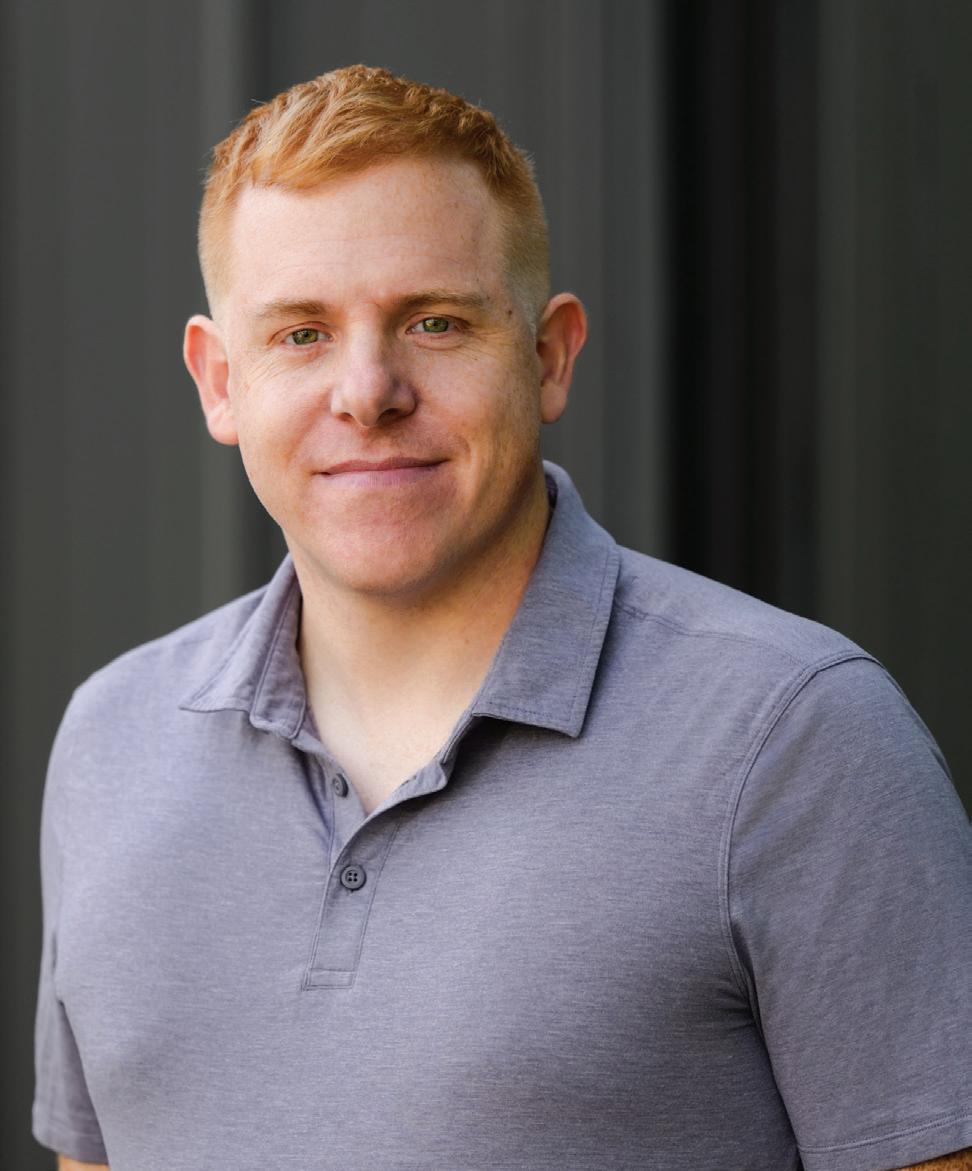



no and Matthew Hamman – worked their way up the ranks, they found themselves disillusioned.
“The more you get promoted, the less stuff you actually do and it’s more politics,” he said. “It just didn’t seem like fun anymore.”
Then, as the COVID-19 pandemic struck, Thelen and his team began working on some side projects. One of those projects was Rownd. The startup began as a data privacy company. After completing the California accelerator program Y Combinator, Rownd’s business proposition shifted.
“Although companies say they care about data privacy, they don’t,” said Thelen. “They’re using really bad products that don’t cost anything so they can have a lawyer say they meet a minimum requirement.”
Rownd is now focused on the onboarding and authentication space, with cybersecurity woven into every aspect of the company’s software. Rownd allows a business to change where a sign-in button is located on their mobile app or website, without needing to install additional code.
“The best apps in the world allow you to actually explore them,” said Thelen. “If you download Airbnb, you can look around and find the perfect house. They don’t make you sign up until you click ‘reserve.’”


Allowing preliminary access to an app leads to more users signing up, Thelen said. An average Rownd client sees a 52% increase in the number of people using their app or website within three months.
App users are not given a password that can be easily hacked. Instead, for each session on an app, Rownd’s software uses pass keys. Each user is also given a credential, called a JSON Web Token, that lasts one hour. After that time is up, the credential needs to be refreshed.
Rownd recorded more than $1 million in annual revenue after completing the Y Combinator program in 2022.
Thelen relocated to Colgate last year to be closer to family. Rownd is now dual headquartered in Milwaukee and Durham, North Carolina, although the company has employees across the country.
Rownd doesn’t have a physical office location in Milwaukee yet, but Thelen plans to look for a space after the company completes its next funding round and hires additional staff.
“Our next big growth stage is going to be raising a Series A, which will be between $7 million and $15 million,” he said. “After that, we would hire 15 to 20 more people.”
He hopes to ultimately have a third of his team stationed in the Milwaukee area.
6 / BizTimes Milwaukee JUNE 10, 2024 Leading Edge @BIZTIMESMEDIA – Real-time news
Matthew Hamann
Robert Thelen
Rachel Orrino

the FRANCHISEE

OMAR SIMMONS THE GOOD FEET STORE
“There’s nothing like being able to help people and make a difference in their lives, and everyone tells me they can see such immediate relief when they try this product.”

THE FRANCHISE: The Good Feet Store is a maker and retailer of custom-fitted arch supports for pain relief, improved performance and everyday comfort. Founded in 1992, the California-based company offers 400 types of arch supports and operates more than 250 locations across the United States.
2012-2021: After 15 years working in private equity, Omar Simmons was ready to shift gears. He purchased a 15-unit Planet Fitness franchise on the East Coast. Through his company Exaltare Capital Management, Simmons grew the enterprise to more than 100 units before ultimately selling it nine years later.
AUGUST 2021: While searching for his next move, Simmons was introduced to Arnold Pereira, a longtime Good Feet Store franchisee based in Milwaukee. He was seeking a buyer for his 23-unit franchise business, spread largely across the Midwest. Simmons was already drawn to the company’s mission.
FEBRUARY 2023: Simmons purchased all 23 units from Pereira, who remains a board member and shareholder. His son, Macabee Pereira, stayed on as chief operating officer, allowing Simmons to focus on strategic direction as board chairman.
JANUARY 2024: The Good Feet Store opened in Pleasant Prairie as one of three new locations Simmons has added to the portfolio. He’s eyeing Chicagoland as the next growth target.
THE FRANCHISE FEE: $25,000

“Macabee’s done an amazing job and has helped us learn the business. … We wanted to not only buy into the Good Feet Store, but we also wanted to grow.”

biztimes.com / 7
Omar Simmons owns 26 Good Feet Store franchise locations, including three in southeastern Wisconsin.
The three-step arch support system is among Good Feet’s flagship products.
Pleasant Prairie’s Good Feet Store is located at 9780 76th St.
Arnold and Macabee Pereira
MEET THE




This Q&A is an extended profile from Wisconsin 275, a special publication from BizTimes Media highlighting the most influential business leaders in the state. Visit: biztimes.com/wisconsin275 for more.
What was your first job, and what did you learn from it?
George: “Process improvement analyst for JP Cullen. I learned a deep respect for the men and women who construct our projects.”
Jeannie: “My first job in the construction industry was as a project manager for a large HVAC company. I was able to learn from a great mentor. She taught me to do my homework and be prepared.”
What piece of advice has had the most significant impact on your career?
“Our grandpa (JP Cullen’s third-generation owner) taught us the most important person in the company is the person swinging the hammer. At JP Cullen, we are a field-first organization.”
If you could have dinner with any two business leaders, who would you choose and why?
“We would both love to have dinner with Judy Faulkner (Epic Systems) and Mark Cuban. We think it would be incredible to hear firsthand about both of their experiences as they developed their companies but also the challenges that each of these incredible leaders have encountered during their careers.”
What are some of your favorite destinations or places to visit?
“Lago Mar in Fort Lauderdale. What makes it special is we each went there as children and now we get to enjoy seeing our children spend time there. We try to overlap by a couple of days as our children really enjoy playing with each other as cousins. In addition, our parents spend the winter in Fort Lauderdale, so it is special time with grandparents.”
What is one podcast everyone should listen to and why?


GEORGE CULLEN AND JEANNIE CULLEN SCHULTZ
Co-presidents, JP Cullen & Sons JANESVILLE


George Cullen and Jeannie Cullen Schultz were named co-presidents of JP Cullen in 2020. The children of company chairman Mark Cullen, George and Jeannie represent the fifth generation of leadership for the Janesville-based contractor. The firm, which has more than 650 employees, has worked on several high-profile projects including the renovation of Camp Randall’s south end zone, the Milwaukee Fortress development, the Milwaukee Soldiers home redevelopment and Fiserv Forum’s structural steel.
George: “The All-In podcast. It is a weekly podcast in which four individuals who are friends and do business with each other discuss and debate the topics of the week. They are all very impressive businesspeople. They have a constructive debate about wide ranging topics. It is rare to see in public forums people having a debate and keep it respectful.”
What’s your hobby or passion?
Jeannie: “We both grew up playing and watching a lot of sports. As we have gotten older, and a little less limber, our playing days have slowed down and now we very much enjoy watching our favorite teams, especially the Badgers. We have recently enjoyed taking our kids to the UW Badger volleyball games and are thankful we are able to do this with our families.”
What is your favorite Wisconsin restaurant and what do you order there?
George: “Casetta Kitchen and Counter in Madison. I tend to order their daily special and it is the best place in Madison for lunch.”
Jeannie: “The Del-Bar (in Wisconsin Dells). I was late to the game and did not experience it for the first time until 2021 but it was such a fun experience and the food is great.”
What would people be surprised to learn about you?
Jeannie: “I have won five competitive eating contests. Most of my competitive eating happened when I was 18 and under, thankfully mostly pie; however, I did enter a sauerkraut eating contest at Wauktoberfest in Waunakee. Despite video evidence that showed me as the winner, I received 2nd place. I can tell you that I will NEVER eat a warm can of sauerkraut in less than a minute ever again.”
What’s the toughest business challenge you’ve had to overcome?
George: “We were working for an international business
that went bankrupt. It was challenging as it occurred in the middle of the project. We had to work with their bonding company to get the work completed. It taught me a lot, specifically when issues arise be sure to bring in experts who can help guide you through challenges. In addition, it showed me how our team at JP Cullen can pull together to get through tough situations. We were able to get the project efficiently completed even with the bankruptcy.”
What advice would you give to a young professional? “Own your own self-development. Like many other companies, we have a multitude of ways for a person to develop: mentorship, coaching, internal training and external training. However, every young professional should take ownership in their career path and set out goals that get them where they want to be.”
What is one thing you would change about Wisconsin to make it even better?
George: “It is not something to change but rather to continue: the general warmness for others that defines what it means to be a Wisconsinite. Having gone to school on the East Coast and worked on the West Coast, nothing can replace in Wisconsin the Midwestern values that are instilled in us to be kind.”
Is there a nonprofit cause that has special meaning to you?
Jeannie: “SSM Health St. Mary’s Foundation-Madison (the nonprofit that supports SSM Health St. Mary’s Hospital –Madison). St Mary’s is a special place to me and my family. I have been fortunate to deliver all of my five children there as well as celebrate the births of my nieces and nephews. While we have had many joyous memories, we have also had some tough times at St. Mary’s with our grandparents and relatives. However, we always know that it is an exceptional place to receive care.”
8 / BizTimes Milwaukee JUNE 10, 2024 Leading Edge
The latest area economic data.




Wisconsin’s seasonally adjusted unemployment rate is at 2.9%.
The average apartment rental rate in the metro Milwaukee area has risen
15.5%
since the first quarter of 2020 to $1,370 in the first quarter of 2024.
Hourly wages in Wisconsin increased an average of 9.1%
year-over-year in the first quarter, the strongest wage growth of any state in the country.

The Milwaukee-area office market had a 17.1%
vacancy rate in the first quarter.
The southeastern Wisconsin region’s industrial real estate market had a vacancy rate of 5.8% during the first quarter.
COFFEE BREAK
Kelly Armstrong President
Kenosha Innovation Neighborhood
2222 63rd St., Kenosha (temporary location) kin-kenosha.org
Industry: Economic development
Employees: 1 full-time employee, 12 board members


• Kelly Armstrong was vice president of economic development for the Greater Green Bay Chamber prior to accepting her new role with KIN. Before that, she was director of sector strategy development at WEDC.
• Armstrong was attracted to the opportunity to “create a collaborative, mixed-use destination and initiative that will bring the community together to live, learn, work and play with a commitment to economic empowerment, entrepreneurship, community engagement and cultural diversity.”
• She said the KIN project is unique because of the leadership pushing it forward. “As you look across the country, there are many examples of municipal leaders who are fine with the status quo,” she said. “Where young talent wants to be today is a community (where) they feel they can contribute to and be engaged in, and you are not going to do that in a place that is stagnant.”
• She sees the former AMC/Chrysler plant site as a “once in a generation” opportunity for the city and the community.
• She’s immersing herself in the Kenosha community by diving headfirst into its food scene. “A true measure of a community’s vibrancy is in their food scene,” she said. “It also speaks to the history of the innovation in Kenosha and how it is woven into the fabric of this community.”
• In her spare time, Armstrong enjoys visiting local farmer’s markets and spending time with her children. “There are so many ways to live life,” she said. “Learning about life in other communities usually a transformative process. In my line of work, it’s also critical research.”


ways to live life,” she said. “Learning is of











• She takes her coffee “over a lot of meetings to move projects forward.” Her drink of choice is a chai latte.













biztimes.com
9
NEWS FEATURE

Lending with purpose
How one local couple launched a thriving real estate investment business, leaving mark on greater community
By Louisa Kamps, for BizTimes
stress-filled way to support themselves, and investing in residential real estate, which Teresa’s parents had done and prospered from, seemed worth exploring.
“My parents immigrated from Italy to the states with nothing and had very blue-collar backgrounds,” she said, yet they still were able to save and purchase the four-family apartment building they lived in in Cudahy and, eventually, the rental income from the property helped her parents put Teresa and her two siblings through college without debt.
In 2009, the Machis bought their first investment property, a duplex in Glendale that had been foreclosed upon. They rented out the duplex’s flats and, using the equity and income they accrued owning the property, purchased another property – and another after that, repeating the pattern.
Anthony said. And when that “still wasn’t enough” to meet all the loan requests they were getting, Teresa added, they formed Mach1 Capital and registered it with the SEC in 2019 to raise more money from other investors who – in exchange for their own returns – could help back Mach1 Lending’s outgoing loans to real estate investors.
Today, Mach1 Capital investors must invest a minimum of $50,000 with a one-year holding agreement, and while they don’t acquire any equity positions in the properties that developers purchase with loans from Mach1 Lending, they do receive a 10% to 12% annualized return that’s paid out monthly, Teresa said.
ANTHONY AND TERESA MACHI met in a classic Milwaukee way: at Henry Maier Festival Park, on a summer night after their freshman year in college.
“We met back in 2001 at Festa,” said Anthony. “It just kind of happened.”
Yet during their first chance encounter at Festa Italiana, they realized they actually had a lot in common. Not only did they both hail from Italian families living not far from each other on the city’s south side, they both were at UW-Milwaukee studying finance.
During the decades since, the Machis, who married in 2006 and are now both 42, have been highly intentional as they’ve acquired accounting and investment skills working in finance, invested their own money and sweat equity in residential properties and co-founded Mach1 Capital and Mach1 Lending, companion private investment and lending companies centered around the real estate industry.
LEARNING TO BALANCE THE BOOKS AND SPOT A GOOD INVESTMENT
After college, Anthony began forging a career in corporate finance working mainly in cash management and treasury roles at Rexnord, Baird and U.S. Bank.
Meanwhile, Teresa discovered her passion for managing investments and treasuries in postgrad positions she held at Stark Investment, Baird and GE HealthCare. But although she loved learning from the many talented professionals she met working in investment and finance, she said, after a few years the pressure and “cutthroat” nature of corporate environments began to lose its luster.
“It was very stressful, and I thought to myself, ‘There has to be more to life than doing this every single day,’” she said. “I just couldn’t see myself in the future going on this way.”
At that point, she and Anthony began pondering how they might find a more independent and less
“We continued that strategy,” known in real estate as the BRRRR strategy (short for buy, rehab, rent, refinance and repeat), she explained, and eventually also “fixed and flipped” other properties that they rehabbed and sold at a profit.
OPENING THE DOOR FOR OTHERS TO INVEST IN REAL ESTATE
While the Machis were still working in their corporate jobs, word of their fruitful property investing spread. Eventually, Teresa said, “a friend of a friend” approached them with a request to borrow money, and because the proposed deal “made sense,” she added, based on her and Anthony’s knowledge of rehab costs and market rates, they decided to loan the investor some of their capital to make the purchase.
“We had our attorney draft the documents,” she said. “We took a first-line position, just like a bank, issuing our first commercial loan in 2016,” launching Mach1 Lending in the process.
But before long, the requests they received exceeded their personal capacity, so the Machis began soliciting friends and family for investments that could help “fuel and fund Mach1 Lending,”
The arrangement has been favorable enough for Mach1 Capital to attract investors from “a wide range of backgrounds,” including “doctors, attorneys, and just everyday people,” including retirees with some cash savings that’s “not really doing anything in the bank” who have chosen to invest with Mach1 Capital for additional monthly income to supplement their pensions, she said.
EMBRACING THE PERKS AND RESPONSIBILITIES OF RUNNING A FAMILY BUSINESS
While Teresa left her final corporate job in 2016 to focus on running the budding family business, Anthony admitted that he hesitated at first to make the leap. He’d always been “hooked to a paycheck” and was nervous about losing that security, he explained. But as Mach1 Lending and Mach1 Capital gained traction, he grew more confident that he and Teresa could thrive as independent family business owners.
“For me, it was getting used to, ‘You know what? We know our system, we know our product. We’ve been working together for years,’” and, finally, he said, he was ready to “take the leap of faith” in 2020, when he realized that by joining Teresa full time, he could “add more value to our business, to us, to our community, and
BizNews 10 / BizTimes Milwaukee JUNE 10, 2024
Anthony and Teresa Machi
to helping other investors, too.”
Day-to-day now, as the Machis balance both wings of their business, Anthony focuses mainly on accounting while Teresa spends more time in the field, meeting investors and inspecting properties their loan clients are considering buying.
The husband-and-wife duo, who currently have about 150 loans in their portfolio, tend to prefer backing single-family and duplex property investments because they’re typically easier to sell than multiunit apartment buildings, in case a borrower wants or needs to cash out, Teresa said.
And, in the end, they always “run the numbers together,” she said, to decide if a deal “makes sense” for them and their clients, on the investing and the borrowing sides of the table. “We’re always proud to say that we have zero foreclosures” on properties
purchased with Mach1 Lending loans, she added, chalking this distinction up to their “really knowing the values” of Milwaukee real estate.
As they were beginning to buy properties themselves in the late aughts, the Machis reached out to seasoned real estate investors in the area – including several Teresa scoped out perusing LinkedIn during lunch breaks from her day job – to learn about their experiences and seek their advice. And today, they are happy to return the favor by grabbing coffee with people who contact them wanting to learn the ins and outs of real estate investing.
Being outgoing and curious “was actually how we propelled our real estate career,” Teresa noted, and because so many people “graciously sat down with us,” now, when others hope to sit down and learn from them, “we
do the exact same thing. Milwaukee is very open and giving when it comes to anything business-related, especially real estate.”
“We want to help people. We want to give back,” Anthony added. “So, we’ll tell you our story and how we can help out.”
The Machis agreed that one of the biggest rewards of accelerating real estate investment through their private investing and banking business is doing more than they ever could on their own to revitalize neighborhoods across the greater Milwaukee area. Recently, they’ve backed real estate investment projects in Brookfield, Bay View and the Washington Park and Harambee neighborhoods in the city of Milwaukee, they said. And while they would not disclose details about specific properties (Teresa cited the need to keep their borrowers’ information confidential), they said that their loan
recipients’ efforts post-purchase to spruce up outdated properties or rehabilitate distressed properties and rent them at market rates has brought new benefits to neighborhoods, “making them strong” places “where families feel comfortable.”
Being their own bosses now, the Machis enjoy taking vacations together with their 4-year-old son whenever they choose, and while they do stay dialed in to Mach1 investing and financing while they’re traveling – “that’s just customer service for us,” said Anthony –having significantly more freedom and flexibility as family business owners feels like a gift.
“Truly, time is the ultimate commodity, and we’re very fortunate we get to work together,” Anthony said. “We might have to take a call at seven o’clock, because when our phone rings, we answer it. But we love it.”
11:00-1:30 PM

biztimes.com / 11 Presenting Sponsor: REGISTER TODAY! biztimes.com/future50 Make plans now to join us in celebrating the 50 fastest-growing privately owned businesses in southeastern Wisconsin at the Future 50 awards luncheon on September 20. These companies have demonstrated substantial revenue and employment growth over the past three years. Hear from the Fast 5—the 5 fastest growing companies in the area—about the challenges and opportunities they faced along the way.
Awards Luncheon Friday, September 20, 2024 Italian Community Center
Partner:
Denali Ingredients produces more
than
1,000 unique baked inclusions
DENALI INGREDIENTS’
110,000-square-foot office and manufacturing facility is a confections wonderland that could rival Willy Wonka’s chocolate factory.
The New Berlin-based company is a supplier of baked inclusions (think brownie and cheesecake pieces used in ice cream), edible cookie dough, chocolate flakes and barks as well as flavor bases, fruit packs and purees.
Denali Ingredients introduces about 70 new products a year to its existing line of more than 1,000 unique items. The company annually makes about 15 million pounds of product for dairy processors and other food brands and retailers.
“If you see an ice cream (brand) behind a freezer door, there is a high probability we work with them,” said Dawn Manthei, chief commercial officer at Denali Ingredients.
The company’s physical footprint is spread across its headquarters building and manufacturing plant on Calhoun Road – where most of the company’s liquid inclusions are made – and a second production facility on Ryerson Road, dedicated to making baked inclusions and extruded doughs and bits.
“I would say cookie dough is (our flagship product) right now,” said Manthei. “We sell so much cookie dough into many different areas of the food industry. It can have so many nuances that no two doughs taste the same.”
Denali doesn’t simply make
classic chocolate chip cookie dough; the manufacturer also offers specialty flavors like red velvet cake and lemon shortbread.
The Ryerson Road plant houses several large, continuous baking lines. Super-sized batches of batter are mixed daily. That batter is eventually baked in a continuous oven that’s several feet long, and then cooled. Once frozen, the baked additions are diced into smaller pieces and packaged.
“The main difference between homemade cookie dough and Denali’s cookie dough is the use of heat-treated flour for safety, scale of production and use of specialized equipment to shape the dough,” said Manthei. “The large mixer combines all of the ingredients just like at home, and the extruder shapes the dough into large and delicious chunks.”
Some consumers might link the Denali Ingredients name to the Moose Tracks ice cream flavor. A sister company called Denali Flavors owns and licenses Moose Tracks-branded products, while Denali Ingredients makes the fudge used to create the popular flavor.
Denali’s headquarters also houses a research and development lab, which includes a conference area, several lab spaces where employees work to perfect recipes and a small test kitchen. The lab was renovated in 2016 to create a more welcoming environment for workers and guests alike.
“It’s fun and inviting, but it’s also very state of the art to make sure we’re keeping up with the

DENALI INGREDIENTS
2400 S. Calhoun Road, New Berlin INDUSTRY: Food manufacturing EMPLOYEES: 120-plus denaliingredients.com
latest technology,” said Manthei.
Creating new inclusion flavors has been key to Denali’s success. Twice a year, there are boxes of unique ice cream flavors and inclusions sent out to the company’s customers for consideration. The most recent box included containers of ice cream flavors like brown butter miso and frosted animal cracker, along with inclusions like baked corn bread and pretzel toffee bark.
“It’s important that customers can see the inclusions on their own,” said Megan Slaven, marketing administrator at Denali Ingredients. “It doesn’t have to be a fully formed concept. It allows for more creativity.”
Slaven leads a team of Denali employees that helps brainstorm ideas for the flavors that are included in each box. Recently, popular trends have included spicy inclusions like Tajin and flavors that harken back to a consumer’s childhood, like frosted animal cracker.
“Each concept kind of takes you down different paths of nostalgia,” said Slaven. “It’s something new that has a twist to it, but also something clients are used to.”
A nine-person research
and development team works with Slaven to bring each flavor concept to life within a matter of months. However, how soon a product might hit grocery store shelves depends on each customer’s respective timeline. Some of Denali’s clients don’t start selling their products until years after working to create a concept with the company.
“We really pride ourselves on being able to customize ingredients to support exactly what a customer is looking for,” said Manthei. “Creating new recipes is key to our whole innovation process.” n

12 / BizTimes Milwaukee JUNE 10, 2024 BizNews
P / 414-336-7144 E / ashley.smart@biztimes.com T / @Biz_Ashley
ASHLEY SMART Reporter
A sheet of cooked brownies makes its way out of a large oven.

NOW IN ITS THIRD GENERATION, TEAM AUSTIN CONTINUES TO GROW
WHAT VALUES OR PRINCIPLES GUIDE YOUR BUSINESS?
Our core values of craftsmanship, integrity, purpose, solutions, legacy and action have served as our north star for over 90 years. As we’ve grown, these guiding principles have become increasingly precious. We have been fortunate to build a team over generations that is committed to upholding my grandfather’s legacy. I believe that as long as we continue to do that, our company will continue to grow not only in size but in culture. My commitment to remaining family-owned and operated into perpetuity is as strong as it’s ever been.
HAS YOUR BUSINESS STAYED TRUE TO THE FOUNDING FAMILY’S ORIGINAL MISSION?
Certainly a lot has changed over the years, but even more hasn’t. My grandfather Austin, who founded the company, had a motto that meant everything to him, “Be good.” And when I say he meant that, I mean he lived his life being good and taught others as well.
By extension, Austin was built on a simple principle: “Be good people and help others solve their problems.”
This shows up daily in our client interactions and in the type of people we have on our team. It’s also proven by their tenure and their willingness to retire at Team Austin.
This company is my grandfather’s namesake. There is no question in my mind that it lives on because we’ve never lost sight of his vision.
WHAT’S THE BIGGEST CHALLENGE THE BUSINESS HAS FACED OVER THE YEARS AND HOW DID YOU MEET IT?
It’s ongoing, and believe it or not, it’s been worth it! My commitment to keep Austin privately owned, forever, creates some unique challenges—especially with all the consolidation in our industry. Having a “forever horizon” changes everything. We’re building a company to last, not to sell.
What that means is, as we grow, we don’t abandon our principles but instead find new ways of applying
them in everything. There’s no doubt in my mind that this path is in the best interest of our customers and employees alike.
So as we continue to scale our operations, I’m always looking decades ahead, preparing for the next generation to resist falling into the hands of private equity. Some days, the fact that we’re still familyowned feels like nothing short of a miracle. But we intend, against all odds, to make sure it stays that way for generations to come.
SPONSORED CONTENT FACES OF FAMILY BUSINESS 530 Norton Drive • Hartland, WI 53029 (262) 367-3808 • teamaustin.com
Eric Smith (left) and son Austin, named after the founding member of the family business.



City, neighbors at odds as Wauwatosa village sees interest from developers
WAUWATOSA’S VILLAGE center is filling up.
Within weeks, two multifamily projects less than a block away from each other, and totaling 310 units, have made their way through the municipal government.
In April, Three Leaf Partners, the Milwaukee-based development firm co-founded by Milwaukee Bucks player Pat Connaughton, proposed a 153-unit apartment building at the site of the now-closed St. Bernard Congregation and Wauwatosa

Catholic School, near the intersection of Wauwatosa and Hardwood avenues. Then, in May, Milwaukee-based development firm Mandel Group received initial approvals for a postponed proposal to build 157 apartment units at the Blanchard Street public parking lot
Rendering of Three Leaf’s proposed project. at 7470 Blanchard St.
The two developments could open at around the same time, which would make quite an impact on the historic village center. While city officials say they welcome the added housing and business patrons, many neighbors aren’t fans of the density and are urging the city to pump the brakes.
“In City Hall there’s a sign that says, ‘Wauwatosa: city of homes.’ Make a note of it on your way out,” one resident said to city officials and a representative of Mandel Group at a recent public hearing. “It’s not the city of homes anymore. It’s the city of ugly, brown, rectangular apartment buildings.”
DEVELOPERS SEE A STRONG NEIGHBORHOOD
Three Leaf’s approximately $46 million, three-story apartment building would include mostly one-bedroom units, with some junior one-bedroom and two-bedroom units as well. The building would include one level of underground parking, plus surface parking spaces and amenities.
“The location of this project is phenomenal,” said Jordan

BIRD’S EYE VIEW: OLYMPIA RESORT REDEVELOPMENT IN OCONOMOWOC
Preliminary construction work has begun at the former Olympia Resort in Oconomowoc as a pair of developers prepare to build more than 600 housing units on the site.
Pewaukee-based Neumann Cos. is planning a single-family and duplex neighborhood, called Olde Highlander, in conjunction with Milwaukee-based Mandel Group, which is beginning construction on an apartment complex called Norden Range.
Development of the 228-acre Olde Highlander project will include 352 forsale homes – a combination of townhome-style and ranch-style duplex condominiums – and two sizes of single-family lots. Mandel Group plans to build 270 market-rate apartments on the property, to be completed by the end of 2025.
The ski hill will not be redeveloped for residential uses; rather, developers are proposing the area be redeveloped for privately owned “family-friendly active uses” and “family-friendly mixed uses.”

14 / BizTimes Milwaukee JUNE 10, 2024 Real Estate REAL E S TATE WEEKLY – The week’s most significant real estate news → biztimes.com/subscribe
CURTIS WALTZ (AERIALSCAPES.COM
KORB + ASSOCIATES
Michalkiewicz, vice president of development and acquisition for Three Leaf. “It’s surrounded by all the amenities and shops and retail that a tenant would like.”
Three Leaf is hoping to break ground on the project late this year, but plans have been held up by Wauwatosa’s Design Review Board, which asked the developers to revise their plans after more than 100 residents expressed opposition to the project in April. Three Leaf then submitted revised plans to the board addressing some neighbor concerns, such as adding more community space. As of press time, Three Leaf was still awaiting a decision from the DRB.
Similarly, at a public meeting for Mandel’s project, dozens of residents spoke out against the project in a nearly three-hour public comment session. Still, the city’s Plan Commission gave the proposal initial approval, though it will still need to get the green light from other city entities.
The $37.4 million project would replace a city-owned parking lot with a five-story building. The project would provide 189 parking spaces for residents and replace the existing lot’s 98 public spaces at a one-to-one ratio. Like Three Leaf’s project, the current Mandel Group proposal includes mostly studios and one-bedroom units, with some two- and three-bedroom units.
With dozens of shops, restaurants and service providers in the neighborhood, both development firms noted the village area’s walkability and bikeability – as well as its proximity to jobs and general desirability – as reasons they pursued their respective projects.
OFFICIALS, ANALYSTS SEE A CITY THAT NEEDS HOUSING
Aside from State Street Station, a 148-unit mixed-use project built in 2017, and Harmonee Square, a 30-unit apartment building built in 2018, there have been very few residences added in the Wauwatosa village area in recent years. Housing is the city’s primary focus for the village center and beyond, said Wauwatosa development
director Paulette Enders, adding that attracting and retaining businesses are also focuses.
“It’s all forms of housing: market rate, affordable housing, special needs housing, having more variety of housing throughout the city,” Enders said.
New housing is something that’s needed in Wauwatosa to address affordability issues, city officials and real estate analysts said. The city’s current multifamily vacancy rate is about 5.5%, which is low, according to Gard Pecor, a senior market analyst with CoStar. But the city’s vacancy rate had been trending closer to 3.5% and only rose recently when the 258-unit 2929 on Mayfair building – located on Highway 100 about 3 miles from the village – opened late last year. Further, Wauwatosa’s rents are trending at about $1,500 per month compared to about $1,400 in the overall Milwaukee metro, according to Pecor.
“Wauwatosa is a very in-demand neighborhood to live – it’s got great school districts, a historic village center,” Pecor said. “We’re in a housing crisis across the market and Wauwatosa’s no different.”
However, space for new housing in the village center is running low. Mandel’s project site is the last large surface parking lot in the village center available and large sites, like that of Three Leaf’s project, don’t come available often.
“It’s not one or the other, the two projects just need to be able to work together in the village,” Enders said.
 HUNTER TURPIN Reporter
HUNTER TURPIN Reporter
P / 414-336-7121
E / hunter.turpin@biztimes.com
T / @HunterDTurpin
FEATURED DEAL

Construction work on Microsoft’s original data center project.
MICROSOFT BUYS MORE LAND IN MOUNT PLEASANT
Microsoft purchased an additional 32 acres of undeveloped land in Mount Pleasant, adding to its portfolio of more than 1,000 acres of land in the area.
The property is north of the land currently owned by Microsoft for its $3.3 billion data center project. The land is also located outside the boundaries of the tax incremental district that was created for the Foxconn development.
Microsoft purchased the site from an affiliate of Wauwatosa-based developer Wangard Partners for $8.8 million, according to state records. The property has an assessed value of $83,000, according to Racine County records.
The property is not directly adjacent to land already owned by Microsoft, and it is surrounded by parcels largely owned by individuals or families.
Microsoft did not respond to requests for comment on the acquisition.

VENUES
Hotel, Entertainment, Dining & Meeting Directory

This annual directory is a must-have opportunity for hotels and standalone venues to showcase their facilities and amenities to the metro Milwaukee business audience. This advertising section is included in the summer Corporate Event Planning special report, published just in time for 2024 holiday event season and 2025 corporate event planning.
Go to biztimes.com/submitvenue to add your listing TODAY!!
Listings due August 2, 2024.
Or contact Linda Crawford at advertise@biztimes.com or 414-336-7112


biztimes.com / 15
Presented it’s 10th annual:
The 2024 BizTimes Media Family & Closely Held Business Summit, held June 3 at the Brookfield Conference Center, provided attendees with actionable insights to apply at their own companies. A panel discussion featuring Katie Juehring of Glenroy, JJ Stanwyck of Cost of Wisconsin and Refractory Service Inc., Mike Moore of Moore Construction Services, and Paul Bostrom of H.O. Bostrom took a closer look at how family business grow while maintaining their culture, navigate succession planning and much more.
The event also included breakout sessions on cashless growth, using QuickBooks, mitigating fraud risks and beginning succession planning with the end in mind.
Thank you to our sponsors Meissner Tierney Fisher & Nichols s.c., SVA and Tri City National Bank and partner Annex Wealth Management for making the event possible. Thank you also to our event partners Edstrom Consulting Group, Family Business Leadership Partners and the UW-Madison School of Business Family Business Center.
SPONSOR MESSAGES:


Meissner Tierney Fisher & Nichols
S.C. has an exceptional history of providing high-quality legal services for over 175 years. With a sophisticated practice committed to careful and effective legal representation across a broad spectrum of clients, we maintain a reputation for providing unparalleled client service. The firm represents its clients in a wide variety of matters, ranging from the challenges a start-up enterprise can face, to the operational opportunities and pitfalls closely held businesses encounter, and ultimately to the smooth succession of a successful longstanding corporation. We continue to provide clients with critical, accurate information in a timely fashion, to help them make sound legal decisions to protect and grow their businesses.
Adam J. Tutaj | 414.273.1300 | ajt@mtfn.com | mtfn.com
Scott T. Reigle | 414.273.1300 | str@mtfn.com | mtfn.com
Daniel A. Sievert | 414.273.1300 | das@mtfn.com | mtfn.com
Brian M. Cooley | 414.273.1300 | bmc@mtfn.com | mtfn.com
For 50 years, SVA Professional Services has been the backbone of success for countless businesses and executives spanning the Midwest and beyond. One of the main drivers behind that success is their commitment to providing clients with Measurable Results®
SVA’s mission is clear: to deliver unparalleled financial and technology solutions. The entities that make up SVA – SVA Certified Public Accountants and SVA Consulting – take pride in their promise to Serve People Better as they strive toward becoming a 100plus year-old firm.
SVA
18650 W. Corporate Dr., Suite 200 Brookfield, WI 53045 SVA.com | 262.641.6888
To the innovators.
To the creators. The builders.
To the pioneers.
To the doers.
To the relentless, won’t-take-no-foran-answer types.
To the first ones in, last ones to leave.
To the sole proprietors.
To the trailblazers. The entrepreneurs.
To the business owners.
To the dreamers.
You inspire us.
We share your roots. Your passion. We started small, too.
And we always remember those humble beginnings.
So go ahead. Make those dreams. We can make them come true.
To learn more about how we can help your business grow and thrive, visit tcnb.com/business.
Ivan Gamboa | Senior Vice President |
Chief Commercial Lending Officer
Commercial Lender 414.325.1182 | i.gamboa@tcnb.com


Partner:


Markets go up and down. Your financial plan should be ready for either possibility – and consider more than the markets. It should consider big ideas like when you’ll retire, tax consequences, your legacy and how you’ll maintain your lifestyle. Annex Wealth Management’s team is ready to plan for what’s next.
Annex Wealth Management is a fee-only RIA which seeks to make financial journeys better through fiduciary advice, customized strategies, and empowering education. We’ve assembled an inhouse team with expertise in many critical areas of wealth guidance, and we’re ready to listen to your unique needs.
If you’re concerned about how you’ll manage it all yourself – or looking for a second opinion on your current direction – let’s talk about where you are and where you’re headed.
Annex Wealth Management annexwealth.com (262) 786-6363

Event Partners:


biztimes.com / 17 JON ELLIOTT/MKE DRONES Wisconsin's Business and Commercial Law Firm • Entity Formation & Structure • Business Litigation • Tax Advisors • Appellate Counsel • Mergers & Acquisitions • Employment Law • Succession Planning 111 E Kilbourn Ave., 19th Floor, Milwaukee, WI 53202 414-273-1300 | MTFN.com
Unlocking growth
Family businesses walk fine line between
metrics and culture
BY ARTHUR THOMAS, staff writer
When the sibling owners of Glenroy Inc. were considering a recent building expansion, they faced an important question.
What kind of business did they want the Menomonee Falls-based manufacturer of flexible packaging to be?
Their facility was at capacity. They could be content with the business their family had built over three generations, but that path also came with a risk of the business becoming stagnant. In an era of consolidation and giant corporations, customers might start looking to suppliers with the capacity to continue investing in the business.
Investing in an expansion came with risk, too. The risk of real dollars on the line for an outcome that is not guaranteed.
It was a big conversation for Katie Juehring and her siblings.
“Every generation needs to bring what they have,” said Juehring, now chairman and chief executive officer of Glenroy. “For us, it was the decision of, ‘Are we happy just staying stagnant or do we have the appetite for growth?’”
“The three of us decided, no, for our generation, and because our goal is that on off into our kids’ generation and then they can decide that risk, but growth needed to happen,” Juehring added.
Glenroy doubled its manufacturing space despite not needing all of the room immediately.
“What it’s doing now is affording us the opportunity to continue to plan farther out,” Juehring said.
Growth is good for a company, generally speaking. They say if you’re not growing, you’ve
started dying. But there are also many ways to grow. More sales. More profit. More employees. More investment in your community. And there’s different timelines, whether it’s quarters, years or generations.
At the same time, even as the headlines are filled with growth stories, there are also cautionary tales of businesses that went too fast, did too much, pushed too far and ultimately crashed and burned.
“Growth isn’t always, especially if you’re just focusing on top-line growth, that is not always the best thing,” said Jeannie Cullen Schultz, co-president of Janesville-based construction firm JP Cullen, adding it is easy to focus on growing quickly, especially if the market is in your favor, but it is important to grow the right way for the right reasons.
“It can go the other way pretty quickly,” she said.
Growing doesn’t require the business’ financial metrics to look like a hockey stick climbing off the chart, but it does mean pushing the boundary of what seemed possible.



COVER STORY 18 / BizTimes Milwaukee JUNE 10, 2024
The third and fourth generation of Glenroy at the groundbreaking for the company’s expansion in 2019.

biztimes.com / 19

“It’s healthy and we’re all better as human beings when we’re stretching ourselves a little bit and we are a little bit uncomfortable, I think we’re all more productive in that kind of situation,” said Mike Moore, president of Menomonee Falls-based Moore Construction Services.
“As a generational leader, you’ve got this thing that you’ve been given control of, and you want to do it justice. You want to live up to the expectations of the generations that came before you,” Cookson said.
Family business challenges
Broadly, the challenges for growing family businesses fall into three categories: Ownership related, financial, and people and culture.
At the ownership level, there’s the possibility of different shareholders having differing appetites for risk, either because of how they view the market or where they’re at in life.
Wolter had its own version of this challenge that it addressed by bringing on a minority investor in BBH Capital Partners, a private equity firm that specializes in working with growth-oriented middle-market companies.
Internal capital was enough to fund a series of acquisitions in recent years that helped Wolter meet its goal of growing 10% per year, but the company increasingly faced multiple points of pressure on that growth.
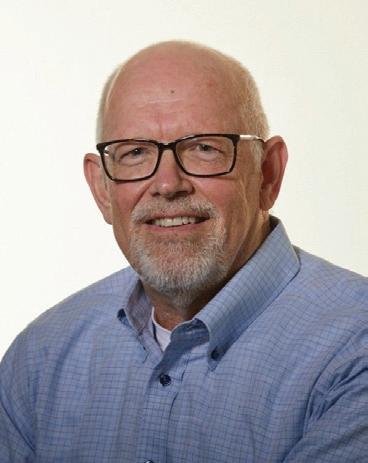
“If you start running a business without growing the business, you change the culture of your company and you don’t provide the opportunities for your employees to grow with the company,” said Jerry Weidmann, president of Wolter Inc., a Brookfield-based provider of material handling solutions.
How family businesses grow
Ownership structures can also dictate a lot about growth. Public companies have quarterly earnings and Wall Street analysts. Venture-backed firms have investors pushing toward a big exit. Private equity-owned firms may be on a timeline for the next sale.
Family-owned businesses can be set up to focus on building a multi-generational legacy. When run with an eye to the future – and the right mix of structure and compassion – one generation of family members can set the next up with options. That next generation can take the reins, bring in outside management or even sell all or a portion of the business.
To understand the specific advantages and challenges family firms have when it comes to growing, BizTimes spoke to more than a dozen family business leaders and bankers.
“In short, family businesses get to play a game other ownership structures do not get the opportu-
nity to play,” said Matthew Powell, CEO of Pewaukee-based Century Fence Co. “If families choose, they can play the infinite game of optimizing for relationships and trust with a timeline of eternity, which builds moats … most ownership structures optimize for current profits, with time horizons of up to five years. It’s a common and crowded game.”
Anne Cookson, president of Waukesha-based Baker’s Quality Pizza Crusts, said family business owners have a different level of personal investment in the company.
“Your business becomes a member of the family and so everything you do is with that in mind,” she said. “I don’t think that non-family businesses get that same level of attention.”
Successful families are able to strategize together as they look to the future.
“When you are thinking about the next decade, at least in our business, it’s really easy for us to be like, ‘Yes, we’ve talked about this, we know exactly where we want to go,’” Cookson said.
Ivan Gamboa, senior vice president and chief commercial lending officer at Oak Creek-based Tri City National Bank, said family businesses tend to have a more centralized decision-making process, making it easier to build and maintain relationships.

“Family businesses are very invested in their business from both time and family resources,” he added. “They have a lot of skin in the game, and they’ll do whatever it takes to be successful. I think that helps a business to become successful, but also helps build their brand in the community.”
But running a family business also comes with its own unique pressure.
For starters, customers and suppliers increasingly want companies like Wolter to be larger, more sophisticated and able to handle more complicated equipment and automation, Weidmann said. Those dynamics are pushing the company to increase its growth goal to 15% per year, potentially doubling the business in five years.
At the same time, Wolter’s second generation of owners is nearing retirement and would potentially be looking to the business’s earnings to support the next phase of their life.
The result is competing demands on the business.
“Looking at a second generation beginning to retire, if you slow the business growth to take care of that particular financial objective, you now have the challenges of what’s going on in the market where you’re no longer growing … and you’re not
“If you start running a business without growing the business, you change the culture of your company and you don’t provide
the opportunities for your employees to grow with the company.”
— Jerry Weidmann, — president of Wolter Inc.
20 / BizTimes Milwaukee JUNE 10, 2024 COVER STORY
Ivan Gamboa
Jerry Weidmann
Mike Moore, right, with his son Austin, vice president of Moore Construction Services.

building the business for the future, you’re focused on the present,” Weidmann said.
To solve the problem, Wolter developed specific criteria for a minority investor to provide liquidity to family members while also providing growth capital to the business.
Since forming the partnership with BBH earlier this year, Wolter has been able to continue its search for acquisition targets, signed a number of letters of intent and expects to close four to six or even more deals per year to sustain its growth trajectory, Weidmann said.
“The reason for that method was not to stress the business by attempting to do both using just bank financing and internal equity, but rather to be realistic about the amount of capital it was going to take to do both objectives,” he said. “It really was the best way in our view to balance the needs of the family and the legacy issue and the needs of the company to grow.”
Working on relationships
Relationships matter for any ownership group, but they can be even more complicated when family dynamics are at play.
Well before the Glenroy owners faced the decision of whether to expand, Juehring and her siblings were working on their relationships. One of the early steps was for each to think about what they wanted their life to look like and if the business would be part of it, acknowledging it was OK if someone didn’t want to be in business with their siblings.
“Really taking time to think about that and all three of us, we came to the table and said, ‘No, I want to be a part of this business, and I want to continue the legacy that our grandpa and grandma and dad started.’ It’s powerful,” Juehring said, adding that knowing and caring about employees and their families was a motivator.
Glenroy’s family business advisor reminded the siblings they were coming to the table as three equal owners, all bringing their own unique
“flavors,” and they’d have to “respect each other through that,” Juehring said.
Regular quarterly meetings and a commitment to working through tough issues helped the group navigate challenges over the years. Techniques that helped include arguing from another sibling’s point of view and encouraging spouses to get information from a family member they’re not married to, Juehring said.
Financial considerations
At a financial level, it is possible family businesses may find it more difficult to access capital, if for no other reason than it is not the way their business is built.
tioned to take advantage of lending programs that may require personal guarantees or longer-term promises to the community.
Family businesses also have the flexibility in choosing how they will reinvest in the business, potentially bypassing a dividend in favor of investment in employees or equipment, said Cullen Schultz. Lubar noted his grandfather, Lubar & Co. founder and chairman Sheldon Lubar, will frequently remind him that retained earnings represent the cheapest form of capital.
That flexibility stands in contrast to businesses backed by private equity or institutional investors, which Jim Popp, president and CEO of Racine-based Johnson Financial Group, said are more prescriptive.

“They’re built to be businesses, they’re built to access capital, they’re built to be capital efficient,” Popp said, describing family businesses as having been nurtured and evolved.
“The plus of that in a family business is you’re not beholden to a metric or a dynamic or a specific outcome within a specific timeframe,” he added. Popp said it is possible for a family business to be a great community partner and have a great culture while still being intentional and develop rigor around metrics and outcomes.

“That’s not what they do day in and day out,” said Patrick Lubar, vice president, Milwaukee commercial lending at Ixonia Bank. “They’re focused on growing their own business, not the capitalization of it. Private equity firms, they spend a large portion of their time developing relationships with lenders and sub-debt providers and other sources of capital on a regular basis and that’s what they specialize in doing.”
Austin Ramirez, CEO of Waukesha-based manufacturer Husco International, highlighted that a family business model is built to take a long-term view on shareholder value creation and inherently aligns company culture and values with the leadership and ownership team. He said “the only downside” is accessing capital to fund growth or acquisitions can be more challenging than they are for a public company.
“This may limit growth in the short term but tends to lead to smarter decisions over the long run,” Ramirez said.
Gamboa noted family businesses are well posi-
“Boy, there’s a really great fine line between being very prescriptive and being only about the soft stuff,” he said.
A focus on people and culture
Many family businesses pointed to their people and culture as one of their strongest advantages. However, if a business is going to grow, it is likely going to add people, and adding more people to the mix is a recipe for the company culture changing.
“The most important capital in a business is human capital, and employees generally prefer working for a family-owned business who has shown that they treat their employees right,” Lubar said.
But treating employees right doesn’t mean losing sight of business objectives.
“This is where you must tread carefully,” said Clifton Phelps, vice president of business development at Milwaukee-based JCP Construction. “When you say ‘family-owned business,’ people are focused on ‘family-owned,’ but it’s a ‘business’ at the end of the day. Sometimes we have to make tough decisions to ensure profitability and take steps to curb outside emotions. It’s definitely a balance to maintain company culture and still be stewards of our own legacy.”
Paul Bostrom, president of Waukesha-based seating manufacturer H.O. Bostrom, said the com-
biztimes.com / 21
Patrick Lubar
Jim Popp
The second and third generation of Glenroy gather with employees to celebrate winning an award for safety.


pany has worked to retain its family business culture even as he brought on new members of the leadership team and a greater commitment to strategic planning.
That means everything from profit sharing to company-provided snacks every Thursday, a tradition that dates back three decades, Bostrom said. There are also employee cookouts and raffles with tickets to local events.

“We can create more loyalty with our team members, and we can flex a little bit,” Bostrom said, noting the ability to help with a down payment or provide a cash advance on a paycheck when needed.
On the other end of the spectrum, there is accountability, although Bostrom said there may be a little more flexibility depending on the situation. The key is a consistent application of policy.
“If you create loyalty with team members, if you don’t hold everybody accountable to those basic rules, then strong team members look at us like we’re not doing our job,” Bostrom said. “I think they expect us to push all team members to work within the guidelines and the expectations.”
H.O. Bostrom managed to have a record year for revenue and profitability last year, but it wasn’t until this year that Bostrom started to see –and hear – the strategic plan his team put in place take hold.
“I am hearing people talk about a specific aspect of our plan that they probably wouldn’t have talked about three years ago,” he said.
Bostrom took over ownership of the business from his dad in 2021. He brought on a new director of human resources who, in turn, helped bring on other top leadership that has worked to develop the strategic plan.
“You have to have a plan, and you have to have good people to execute the plan or you just won’t do as well as you could,” Bostrom said.
He said in the past the company has tapped into available support resources to develop a plan, but the work didn’t continue or wasn’t consistent.
“I would say the key is to get everybody in agreement on the plan that you create because one person can’t push it,” Bostrom said, adding that different portions of the plan are reviewed on a monthly basis and changes made as needed.
Investing time and energy into becoming more process-driven, organized and structured has helped Jackson-based Refractory Service Inc. see strong growth since 2020, said JJ Stanwyck, CEO of the industrial high-temperature construction firm.
Around the start of the pandemic, the company lost a number of employees due to retirement, Stanwyck said.
“Looking around, it was kind of like, well, what are we going to do here?” he recalled.
It offered a bit of a blank-slate opportunity, but Stanwyck said he also had to leverage the talent that did re main in the business. Getting buy-in from employees and overcoming a change-re sistant mindset was a key part of the success.
“That was really critical, not having sticks in the mud to moving forward,” Stanwyck said.
For many family businesses, it can be easy to develop resistance to new ideas especially with long-tenured
employees and leadership from an older generation that built the business.
Stanwyck worked to cut through that attitude by offering a clear vision and spelling out how changes would benefit employees.

“It really was a lot of cheerleading and constant reminders to everybody and conversations,” Stanwyck said, adding that it became easier after he got a few people on
of the theme park construction work

22 / BizTimes Milwaukee JUNE 10, 2024 COVER STORY
An example
done by Cost of Wisconsin, another family business Stanwyck leads. The two companies share some overlapping services.
JJ Stanwyck
Paul Bostrom
H.O. Bostrom’s original facility from 1946 (above) and its current facility in Waukesha (right).
“It’s healthy and we’re all better as human beings when we’re stretching ourselves a little bit and we are a little bit uncomfortable, I think we’re all more productive in that kind of situation.”
— Mike Moore, president of Moore Construction Services
board. He hesitated to call it a “constant battle,” describing the work instead as a journey.
Stanwyck was also willing to ask what people needed, what would help them do their job and then make investments accordingly.
“It was that comfort level of asking, too,” he said. “I couldn’t predict what everybody needed or wanted.”
One part of Stanwyck’s message to employees was that he was not trying to take the family aspect out of the company, rather his goal was to make everyone’s life easier.
The result has been an enhanced family culture as employees have organized more Friday
lunches and other small, impromptu activities that have helped build rapport and camaraderie, Stanwyck said.
Growing the business, and making operational changes to allow for that growth, also serves a larger, long-term purpose. Stanwyck said it will help set the next generation up with options.
A model for growth
From a business model perspective, Mike Moore saw an opportunity when he started Moore Construction Services in 2007 to offer pre-construction services, helping customers know what is feasible and get a better handle on costs. Then,
having the right project managers and on-site superintendents allowed the firm to meet customer expectations, helping to foster repeat business in the future.
“We’re not out buying work just for growth purposes,” Moore said. “Part of it is our capabilities, our recognition, the development with ourselves and our customers that bring us that repeat business; it’s just like a snowball effect, it just keeps growing.”
“Now, you have to deliver or that growth will go away,” he added.
A snowball rolling downhill may keep getting bigger, but a growing company needs to add staff to execute. Finding the right people helps the company meet customer expectations, which in turn helps land repeat business that fuels growth. Hiring the wrong people could mean the snowball may slow down or even shrink.
“The whole premise here is maintaining the culture so that (when) we’re hiring people they know what’s expected, how we operate and that they’re a right fit, they’re buying into our culture,” Moore said.
He also said family businesses have the opportunity to understand “it’s not just all about the dollars.”

biztimes.com / 23
“We’re looking in more of a long-term perspective, which helps feed into that repeat business as opposed to having to have to drive just the numbers,” Moore said. “In general, I feel a family business, if it’s run properly, has more of a personal feel to it than a numbers-driven organization that’s looking at purely EBITDA.”
Listening to customers
Delafield-based Evans Transportation landed the top spot as the fastest growing company in the region, as part of BizTimes’ 2023 Future 50 program, and this year is projecting 24% growth. It’s not just growth without a mission. Evans donates 10% of its net income to charitable causes nominated by employees.
Six years ago, after buying out a business partner, the father-son duo of Charlie and Ryan Keepman made it a point to not be “the jack of all trades, master of none.” Instead, they focused on managed transportation and building relationships with less-than-truckload carriers.
However, that focus and execution led to customers asking for the same in truckload service. A growing truckload business led to the launch of a project division for more complex freight. Then, as the post-pandemic economic boom gave
way to a downturn that led to layoffs in the industry, Evans decided to keep investing by adding a parcel division.
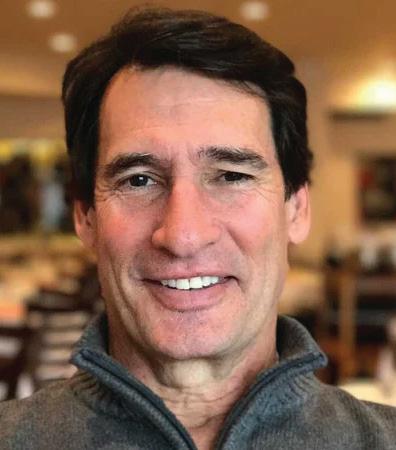
“We have a really good way of communicating and building trust … nothing more important than trust when it comes to doing business with one another,” said Charlie Keepman, founder and chairman of Evans.
“Listening to our clients and then being able to execute,” added Ryan Keepman, CEO of Evans. “I think that’s a big, big, big piece to it, but a lot of it was very strategic in nature as well.”
Ryan explained the company has its plans in place and leadership teams meet quarterly to make sure they stay aligned and revise them as needed based on customer feedback. He pointed to a new business announcement planned for this summer that was the result of listening to clients.
“Was it in our original budget? No, but we’re finding space for it throughout the year to make sure it can fit and we can service our clients to
the best of our ability,” Ryan said.

The kind of growth Evans has experienced poses an inherent challenge for any business. People, culture and relationships have been at the center of the company’s growth, but growing means adding people, creating a potential threat to the very thing that has propelled the business forward.
Ryan said the answer is in leaders using their time effectively and being very intentional about focusing on the company’s people.
“Whereas in the past it might’ve been a lot more focused on execution, but hiring more and better leaders that are in alignment and rowing in the same direction we are is the only way that we’re going to be able to grow and retain that same family feel to the business,” he said. “It’s hard. It takes a lot of work. It takes a lot of time that sometimes it doesn’t feel like you have, but at the end of the day, you’ve got to make it because your people are what’s most important.”

Your
BUSINESS CARES
DIVERSITY IN BUSINESS
DID YOU KNOW?
62% of men, 89% of African Americans, 80% of Asians, and 70% of Latinos ranked workforce diversity as important in their job search.

24 / BizTimes Milwaukee JUNE 10, 2024 COVER STORY Advertise in these upcoming special reports to get your message in front of area business executives. Contact Linda Crawford today! Phone: 414.336.7112 Email: advertise@biztimes.com Mid-Year Economic Forecast Diversity in Business July 29, 2024 July 29, 2024 Space Reservation: July 10, 2024 Space Reservation: July 10, 2024 Including CEO Q&A thought leadership pages Including Diversity in Business Business Cares cover logos
go online to biztimes.com/diversity to sign up
your logo. JUL. 12 2024 JUL. 29 2024 SPACE & LOGO RESERVATION: PUBLICATION DATE:
lines
logo
BizTimes
Call 414-336-7112 or
and submit
We invite your company to reserve your place on the front
of progress by placing your
on the front cover of
Media for only $850.
for workplace
in
support of the cover will go towards a full month of exposure
diversity coverage
print, online and enews.
Ryan Keepman
Charlie Keepman


















biztimes.com / 25
Results.
50 YEARS OF SERVING PEOPLE BETTER Honoring Our Past, Shaping Our Future
half a century of excellence in accounting and consulting solutions.
you for 50 years of trust and partnership. Scan to Learn More Discover how our experience can shape your future success by providing your business with Measurable Results.®
Measurable
® | sva.com |
Celebrating
Thank

Victor’s pending sale a cautionary tale in failure to establish succession plan
BY CARA SPOTO, staff writer
IT’S AN ALL TOO familiar situation. The patriarch of a family business dies and the children of the founder are left to decide – or in many cases fight over – what happens next.
That scenario has been playing out behind the scenes recently at longtime downtown Milwaukee nightclub Victor’s. In late March, it was reported that the business – a favorite of locals for its unfussy vibe, lively atmosphere, dancing and strong cocktails – had been listed for sale.
Victor Jones, who founded the nightclub at 1230 N. Van Buren St. in the mid-1960s, died in 2021 at the age of 91, leaving sole ownership of the business to his wife, Mary Ann Jones, who is 92.
Selling the bar after six decades of family ownership – a decision Mary Ann made under the guidance of another family member – is understandable considering her age and the difficulties the business has faced in the wake of the founder’s death, but it’s a move not all of her seven adult children agree with.
Listed for sale at $1.9 million, the property and business are under contract to be purchased for an undisclosed amount as of late May, said Vic Jones, who has operated the establishment for the past 25 years as the youngest son of Victor Jones.
Fred Williams, who is the husband of Vic’s eldest sister, Karen Williams, and the trustee of Mary Ann’s estate, confirmed that the business and property are under contract to be sold but would not disclose the purchase price or the length of the contract.
NO SUCCESSION PLAN
Many of the Jones siblings have been involved in the bar’s day-to-day operations for periods of time over the years. Vic, now 68, started working at the bar at the age of 8 or 9, he said.
Today, only Vic and his three brothers work at the business. They had put together a proposal to purchase the business and building themselves, but negotiations ultimately fell through, he said.
Vic’s three sisters, who made much of the food for the restaurant, retired last spring, putting the Victor’s kitchen out of commission. Now, they want to sell.
A main reason for the current circumstances, Vic said, is that there was not a succession plan in place at the time of his father’s death.
“Victor never thought he was going to die, so he didn’t set this thing up,” Jones said. “I did have papers drawn up like 10 years ago, but he didn’t like the way it was stated. He thought, ‘If I sign something, then I get older, I lose power and I’ll be in an old folks’ home and other people would be running it.’ That’s the kind of person he was.”
Victor might have let his lawyer help set up a transition plan, Vic noted, but that lawyer died before Victor.
“He wouldn’t really listen to anybody else,” Vic said.
CAUTIONARY TALE
The situation the Jones family finds itself in, although typical, is a cautionary tale, says Dave
Borst, a longtime family business consultant.
He said if Victor’s was intended to survive beyond its founder’s death, it should have really been set up as a family business from the get-go. And the onus to create that structure was on the business’s founder, the late Victor Jones.
“A family business is one that is intentionally structured so that the family has it, and it gets passed on from generation to generation,” Borst said. “The fact that you had family members working in the business and that it was passed down one time does not necessarily make a family business per se.”
When a business like Victor’s – one founded and owned by the head of a family but run by their children – isn’t specifically structured as a family business, things start to “go haywire,” said Borst.
When counseling family businesses, Borst frequently speaks about intentionality.
“You need to be intentional about passing a business along to the next generation,” he said. “We have to have the forethought and the gumption to understand that we’re not going to live forever,” Borst said. “And it’s perfectly okay for a founder to say: ‘You know what? I don’t want to pass it along to the next generation. I want it to be done.’”
Unfortunately for the Jones family, Victor never shared those intentions.
“My dad was a brilliant guy, but he was afraid that he wouldn’t be in charge anymore if we made a transition plan,” said Vic. “I kind of think that he thought he was going tell us what we should do in the last 10 minutes before his death, but there was no last meeting.” ■

Special Report FAMILY BUSINESS 26 / BizTimes Milwaukee JUNE 10, 2024
Victor’s is located at 1230 N. Van Buren St. in downtown Milwaukee.


Summit Credit Union


The stronger people are financially, the stronger we are as a community. We live by this credit union principle at Summit Credit Union, offering free, nationally recognized financial education to Summit members and non-members including your employees.
Invest in your team, at no cost. Through our complimentary Financial Wellness for Employees by Summit program, we invite employers to partner with us to help make sure everyone is as good with their own money as they would be with anyone else’s. Help employees be happier and healthier.
A wellness survey showed 92% of employees are stressed about their finances.* Financial Wellness for Employees by Summit helps people
face their financial realities with confidence. And that pays off for both the employer and the employee, who is happier, healthier and more productive, at work and overall!
Lead the way in employee benefits with this easy, custom program. We offer online, on-demand education tailored to each individual and, based on your company’s needs, we may include on-site education events to address your employees’ overall areas of interest. That flexibility to deliver top-notch financial education to your employees at home or in the workplace at no cost is empowering.
And empowerment is what financial wellness is all about.
800-236-5560 Insured by NCUA. *BrightPlan 2023 Wellness Barometer Survey Let’s Connect!
SPONSORED CONTENT

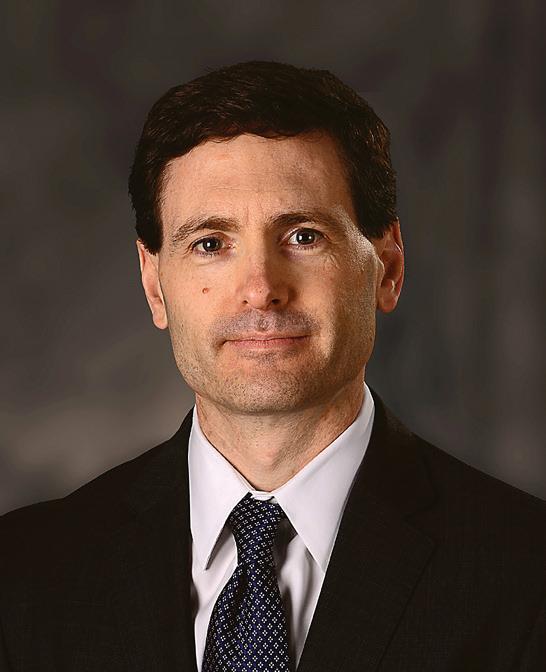

What’s the working capital adjustment and why is it a pain point in selling a business?
BY ARTHUR THOMAS, staff writer
ASK SOMEONE who has sold their business which part of the deal caused the most stress and there is a good chance they will say it was the working capital adjustment.
“Working capital is often the most heavily negotiated portion of the deal,” said Ann Hanna, managing director at Milwaukee-based Taureau Group.
Working capital is the difference between a company’s current assets, including cash, accounts receivable and inventory, and its current liabilities, such as accounts payable and shortterm debt. However, some assets or liabilities may be excluded. As part of the deal, a buyer and seller will agree on a working capital target, generally based on historic averages. At closing, the difference between actual working capital and the target will result in the purchase price being adjusted up or down.
It is meant to be a mechanism to make sure the acquired business has the working capital needed to operate going forward while also accounting for normal or seasonal fluctuations in a business.
“At its core, this mechanism is meant to ensure that there is no detriment or benefit to either the buyer or seller due solely to the timing of the transaction’s close,” said Nick Kozik, director at Milwaukee-based TKO Miller.
Hanna suggested those new to the sale process “should be careful to avoid the temptation to defer
the working capital conversation to later in the process because it seems small, easy or straightforward.”
“It is a complex mechanism that often involves material dollars and can absolutely be manipulated to benefit one side or the other,” Kozik said. “So, it is very important that inexperienced sellers (or buyers) take time to fully understand the adjustment and all of its moving parts – or have an advisor that does – before agreeing to a final working capital adjustment.”
To get a better sense for why this portion of the deal poses challenges, BizTimes reached out to Hanna and Kozik, along with John Emory Jr., president of Milwaukee-based Emory & Co., and Robert Jansen, managing director of Milwaukee-based Bridgewood Advisors. All four are investment bankers working in southeastern Wisconsin. Each provided their responses to questions on issues with the working capital adjustment and things buyers and sellers should keep in mind:
BIZTIMES: WHY IS THE WORKING CAPITAL ADJUSTMENT FREQUENTLY A PAIN POINT IN TRANSACTIONS?
Ann Hanna: “While the intent is to provide a neutral, level playing field between buyer and seller, how the playing field is drawn can be very subjective. With supply chain issues and raw material price increases we saw in 2021-2023, in-

ventories held and inventory dollar values have been skewed, so a historical look back can be very difficult and not representative of working capital needs. Working capital, by definition, sounds very easy to calculate and very straightforward – it is not either of those.”
Nick Kozik: “Anything that results in a change to the proceeds at close tends to have the potential to be controversial, but I think that there are two factors that contribute the most to the working capital adjustment becoming a particularly contentious aspect of negotiating a transaction: One, sellers who are often less experienced in doing transactions do not entirely understand the purpose and mechanics of the working capital adjustment. The working capital adjustment is not supposed to be a gain or a loss for either side. If the target is set at a fair level that truly reflects the working capital needs of the company, any movement to proceeds, up or down, caused by the working capital adjustment should be offset elsewhere. … Two, buyers who are often more experienced in doing transactions will sometimes try to use the working capital adjustment to capture additional value. While at its core the working capital adjustment is meant to be a neutral mechanism, it is not uncommon for one side (more often the buyer but sellers are not immune) to try to manipulate the working capital adjustment in their favor.”
John Emory Jr.: “Setting the working capital target, or peg, used to determine the purchase price adjustment is often a pain point in transactions for many reasons. The biggest reason, in my view, is that it is a dollar price adjustment up or down for every dollar the closing working capital is above or below the peg. Thus, every dollar that
28 / BizTimes Milwaukee JUNE 10, 2024 Special Report VALUATION & SUCCESSION
Robert Jansen
John Emory Jr.
Ann Hanna
Nick Kozik
would go to one party comes from the other party, leaving no real room for a ‘win-win’ compromise.”
Robert Jansen: “Beyond the potential economic magnitude, the emphasis on net working capital is driven by complex and often subjective factors, including the business’s growth trajectory, seasonality, excluded assets and liabilities, inconsistent interim accounting, and nonrecurring and intercompany transactions.”
WHAT SHOULD SELLERS KEEP IN MIND TO BEST NAVIGATE THIS PORTION OF THE DEAL?
Hanna: “When considering a transaction, both buyer and seller should review historical net working capital to determine the amount of volatility and seasonality in the business. For a business with volatility, seasonality or a skewed history (past 12 months), the parties should address the working capital and, at minimum, agree on a formula prior to signing a letter of intent.”
Kozik: “Try to take a neutral mindset when considering the working capital adjustment. A positive working capital adjustment doesn’t mean you won, and a negative working capital adjustment doesn’t mean you lost.”
Emory: “Among family-owned businesses in
the Midwest, it is often a badge of honor to pay bills very quickly, much faster than their customers pay them, which often leads to an imbalance of larger receivables than payables. Corporate buyers, such as private equity groups or large strategic buyers, will plan to stretch out their payment of payables compared to the extremely fast payment of family-owned companies. Thus, given that the peg is normally set at the level of the twelve-month ends before closing, a seller would often get a more favorable and reasonable peg if they run their business more like corporate buyers would, by not paying receivables overly quickly in the year before starting their sale process. Sellers would typically benefit from running their companies with adequate, but not excess, working capital in the year or more before negotiating the working capital peg.”
Jansen: “Based on decades of negotiating net working capital provisions, the best outcomes always occur when the net working capital composition and adjustment mechanics are clearly defined – ideally at the account level and within the letter of intent.”
WHAT SHOULD BUYERS KEEP IN MIND TO

BEST NAVIGATE THIS PORTION OF THE DEAL?
Hanna: “The buyer should state their intended approach to working capital in their letter of intent (i.e. the average of the previous 12 months on a GAAP basis). The parties can always agree to adjust that approach during diligence.”
Kozik: “Be reasonable and don’t try to use the working capital adjustment as a way to knowingly grab value from the seller. Your goal should be to ensure that you have adequate working capital to comfortably operate the business. It should not be to try to get a seller to agree to a working capital structure that, if accepted, has you cheering and popping bottles of champagne.”
Emory: “The buyer doesn’t want the seller to change the way they have run the business in the past and unnecessarily run down the level of working capital leading up to a sale transaction. For example, the buyer wouldn’t want the seller to stop paying payables in the months before closing, leaving the new owner an unusually high stack of unpaid bills.”
Jansen: “Beyond historical analysis, acquirers also need to be mindful of the future working capital needs of the business, which can sometimes be dramatically different.” ■

business presents unique challenges and opportunities. We know because we’ve partnered with Wisconsin-based, family-owned businesses like yours since 1957
From the big stuff to routine transactions, we’ve got your business covered.
biztimes.com / 29
Family Matters. From daily operations to planning for a generational transition, managing a family-owned
877.455.2900 GKLAW.COM/FAMILYBUSINESS MILWAUKEE MADISON | GREEN BAY APPLETON | EAU CLAIRE WASHINGTON, D.C.
VALUATION & SUCCESSION
Executing the handoff
What makes for a successful succession plan?
BY LAUREN ANDERSON, for BizTimes
HEATHER NELSON was approached multiple times about succeeding David Schuelke as president and CEO of Spring Bank before ultimately saying ‘yes.’
Nelson had been a commercial lender with the Brookfield-based community bank since 2010. Schuelke had led the company since its founding in 2008. With retirement on the horizon, Schuelke asked Nelson for a few years running to consider stepping up.
“Every year, I would decline,” Nelson said. “And we would then interview different candidates, and we never found someone that we thought was a good fit for a community bank of our size and our culture.”
In 2022, Nelson was approached once again.
“For the first time, I said, ‘Let me think about it.’ At that point in time, I was comfortable being a commercial lender, which I had done for 30 years, and I thought I could just continue to do that. I was really comfortable; I was good at it,” Nelson said. “But then, with David’s persistence and his encouragement, I finally made the decision to step out of my comfort zone into a job I knew I could do.”
Nelson assumed the president role in January 2023, with Schuelke staying on as CEO for another year. Nelson added the CEO title this March, completing the succession plan.
In many ways, the conditions at Spring Bank

were right for a leadership hand-off: a next-generation leader, prepared to step into the position; an existing, trusted relationship between outgoing CEO and successor; and a long enough runway to allow for mentorship. Nelson credits the year of overlap between her and Schuelke, along with the support of the bank’s board of directors, with helping ease her transition.
Depending on the industry, a year or more of overlap between the incoming and outgoing CEO is ideal, said Jim Morgan, vice president of business development and workforce strategies for Waukesha-based employer association MRA.
But not all businesses enjoy the luxury of time, he said.
Twenty years ago, the transition from one leader to the next was “relatively well-scripted,” Morgan said. A company would identify key C-suite leaders that were nearing retirement, begin the process of identifying an internal candidate or candidates, and the heir-apparent would step onto the on-ramp as early as two years ahead of the retirement.
That scenario is not as common today. Wider talent shortages have led to crises for companies looking for their successor, according to Morgan.
“Companies are now having trouble finding talent, and it’s not just the top two or three people in the organization,” Morgan said. “They’re looking at all of their key positions – it might be a key






manager, it might be a key department head, it might be that one person left on the factory floor who knows how to start that one machine. Succession planning is really just becoming a bigger talent management process now that asks: Do we have a bench? Do we have people ready to go? Are we developing our next set of leaders?”
When preparing for a CEO’s departure, a company’s board of directors must have a clear vision of its future before launching the search for his or her successor, Morgan said.
“The goal is to figure out what are the company’s next steps, where is it going in the next five to 10 years? Is it a company that needs to get the ship heading in the right direction? Is it a company that’s ripe for growth or acquisitions? Then you’d need somebody with a whole different skill set,” Morgan said.
When multiple internal candidates vie for a position, a business should work to retain them in the transition, he said.
“The first step is complete transparency. If (an employee) applied for the CEO job and didn’t get it, that employee deserves an explanation,” Morgan said, noting that the hirer should communicate the skill set or experiences they were seeking in their next leader and how the candidate can prime themselves for the next opportunity.
“… And that should be followed up by, ‘You’re still a valued member of this team. We’re going to need your expertise as we bring the new person on board. We hope you’ll be a part of that.’”
Family businesses have a unique set of considerations when passing the company from one leader to the next, said Dennis Ellmaurer, a Vistage chair emeritus who advises family and closely

Special Report
30 / BizTimes Milwaukee JUNE 10, 2024
Matt Judson
Heather Nelson
Jim Morgan
Dennis Ellmaurer
held businesses. The process should start early and is tied up in the career path of the next-generation heir-apparent.
“You have to have them go work for somebody else for a while to gain some experience that’s different from the company that they’ll be eventually leading,” he said. “That may take a couple of years, so it’s a longer-term process.”
A potential successor should also gain experience working “from the ground up” within the family business, Ellmaurer said.
“It’s a good idea to get your hands dirty on the shop floor; that’s usually a good place to start,” he said. “They’re probably going to be exposed to some increasing levels of authority and responsibility and probably fast-tracked, but they’re getting there touching different disciplines, … getting a feel for how those functions work.”
That’s how Matt Judson got his start at Judson & Associates, the Pewaukee-based commercial real estate firm his grandfather founded and his father now helms.
Judson cut his teeth at the firm working in maintenance.
“I was the one painting rails, changing lights, all that good stuff,” he said. “All those experiences,
at the end of the day, were just very helpful when I actually decided to join full time.”
He went on to become a licensed sales agent in 2013 and honed a focus in industrial real estate within the company. In February of this year, he was named president of the firm.
Judson grew up learning about the business from his father, Mike, and grandfather, Darryl. He recalls taking drives on the weekend with Mike pointing out properties.
“He used to tell me, ‘We just leased this building to this group,’ or ‘We just sold this one.’ ‘This is 20,000 square feet,’ ‘This is 50,000.’”
In some respects, the succession plan was already underway back then.
“When I was younger, at family dinners, we happened to talk a lot about the business and real estate and transactions,” he said. “I might not have known what the heck they were talking about, but as I look back now, I understand that it was able to kind of lessen my learning curve when I actually did join (the business).”
Judson identified “patience, education and communication” as key elements of a good succession plan, noting that a positive of family businesses is that there’s time for a long handoff.



“There’s never going to be a day where (Mike’s) input is not important, and this is a transition that’s going to take a longer time than just what the paper says, but that’s the blessing of it,” Judson said.
While there is often the temptation for a founder/CEO to remain involved in the business after their retirement, Ellmaurer said it’s best for an outgoing CEO to limit their involvement to an advisory capacity.
Nelson said she continues to benefit from the mentorship of Schuelke, who now serves on Spring Bank’s board of directors.
“He continues to be an advocate for me and to help me in areas where I have questions,” Nelson said.
Among family businesses, Ellmaurer has seen success when an incoming CEO forms an advisory board that includes the founder, along with people from outside the organization, who can be counted on to bring third-party independence.
For the retiring leader having trouble cutting ties, Ellmaurer offers this advice: Allow their successor to lead and make mistakes; pick a firm date to make their exit; and then, “go play some golf.” ■



financial
listens
retirement
Partners, we've been trusted advisors
individuals,
To learn more about us IAG Wealth Partners, LLC. N19W24200 Riverwood Dr., Waukesha, WI 262.446.8150 | www.iagwealthpartners.com Securities offered through LPL Financial. Member FINRA/SIPC. Investment advice offered through IAG Wealth Partners, a registered investment advisor and separate entity from LPL Financial. BizTimes Media has teamed up with Baxter Research Center, an independent third-party research firm backed by more than 30 years of experience, to provide you with valuable information about your advertising. Baxter Research Center performs ad studies to help increase the effectiveness of print ads through independent ad effectiveness data, reader comments, and qualified leads. Craving Advertising Research, Analytics, Reader Feedback and Qualified Sales Leads? WE'VE GOT YOUR COVERED! Contact advertise@biztimes.com or your sales rep today! ISSUE DATE October 7 SPACE RESERVATION September 18
Are you looking for a
advisor who
to your dreams, understands your
goals, and helps you preserve a legacy for the generations to come? At IAG Wealth
to families,
and business owners for nearly four decades!
biztimes.com / 31
N OTA BLE LEADERS
BizTimes Milwaukee is proud to present its inaugural showcase of Notable Leaders in Arts & Entertainment, recognizing accomplished professionals who keep Milwaukee in the spotlight with world-class arts and entertainment. The individuals on the following pages were nominated by their peers and highlight the talent in the region.





METHODOLOGY: The honorees did not pay to be included. Their profiles were drawn from nomination materials. This list features only individuals for whom nominations were submitted and accepted after review by our editorial team. To qualify for the list, nominees must be based in southeastern Wisconsin, must serve in a seniorlevel role and have had a measurable, specific impact on their respective organizations and/or the industry at large.




















 MARK DAVIS FOUNDER, ARTISTIC DIRECTOR AND INSTRUCTOR
MILWAUKEE JAZZ INSTITUTE
MARK DAVIS FOUNDER, ARTISTIC DIRECTOR AND INSTRUCTOR
MILWAUKEE JAZZ INSTITUTE
In addition to his role as founder, artistic director and instructor at the Milwaukee Jazz Institute, Mark Davis is one of the top jazz pianists in the country.
“Mark is respected nationally,” said Vince Shiely, partner at Lubar & Co. “He has been a tireless advocate for jazz as a musical genre and strives to develop a vibrant jazz community in Milwaukee in the areas of jazz education and training. He works tirelessly to make world-class jazz performance available in Milwaukee.”
Davis has given jazz piano lessons to local executives like Shiely as well as Greg Marcus, president and CEO of The Marcus Corp., according to Shiely.
Davis founded the nonprofit Milwaukee Jazz Institute with his wife, Erin, who serves as the institute’s managing director, to uplift Milwaukee’s culture through jazz education and performance, create opportunities for professional musicians and teach the next generation of jazz artists.
He has also sold 28,000 copies of his two jazz piano method books, which he wrote to train up-and-coming pianists.
“We are fortunate to have his passion and skills available, and Milwaukee is a better place musically because of him,” said Shiely.




32 / BizTimes Milwaukee JUNE 10, 2024
® marcuscorp.com Congratulations Mark Davis of the Milwaukee Jazz Institute! You are “Note” able to us! masonstreetgrill.com
 MICHAEL PINK ARTISTIC DIRECTOR MILWAUKEE BALLET
MICHAEL PINK ARTISTIC DIRECTOR MILWAUKEE BALLET
Milwaukee Ballet has been under the artistic direction of Michael Pink for 21 years. This season, Pink debuted his holiday ballet, “The Nutcracker: Drosselmeyer’s Imaginarium,” drawing more than 31,000 people in December.
Introducing a new production in challenging economic times is a hallmark of Milwaukee Ballet under Pink’s leadership, according to Donna O’Loughlin, development manager of major gifts and grants at the ballet. More than 90 world premieres have been created for the company under his tenure.
“Like many companies, Milwaukee Ballet depends on its holiday production for financial survival, but Pink was determined to give ‘The Nutcracker’ new life,” O’Loughlin said.
Pre-COVID, Pink launched a capital campaign to replace the decades-old “Nutcracker.” The campaign was just gaining momentum when government-mandated lockdowns forced the company to focus on the uncertainties of the pandemic.
In spring 2022, when the $5 million capital campaign was reinvigorated, funds raised covered the design, build and maintenance of the new “Nutcracker,” and supported the “Give Back to Milwaukee Fund,” so families with limited means could attend.
 KEVIN GIGLINTO PRESIDENT AND CEO
KEVIN GIGLINTO PRESIDENT AND CEO
MARCUS
PERFORMING ARTS CENTER
Kevin Giglinto joined the Marcus Performing Arts Center in July 2023 as its new president and chief executive officer, with more than 25 years of experience.
Over the past nine months, Giglinto’s initiatives have led to a 32% increase in venue attendance, the launch of a new series, and an investment in tools to broaden MPAC’s digital reach, according to Lori Craig, senior vice president, market leader for PNC Private Bank and chair of the Marcus Center board.
“He was instrumental in creating MPAC’s latest performance lineup, the Culture Collective, designed to celebrate and elevate the contributions of artists of color across a spectrum of artistic disciplines. This new series aligns with MPAC’s commitment to racial equity, diversity and inclusion,” Craig said.
Giglinto also launched a new internship program at the Marcus Center, providing young people a chance to explore a career in the arts.
He is a member of the Milwaukee Rotary Club and the Greater Milwaukee Committee. Giglinto also served as a business development volunteer for the U.S. Peace Corps in Romania.








 SUZAN FETE | LISA RASMUSSAN ARTISTIC DIRECTOR | MANAGING DIRECTOR
SUZAN FETE | LISA RASMUSSAN ARTISTIC DIRECTOR | MANAGING DIRECTOR
RENAISSANCE THEATERWORKS
Suzan Fete and Lisa Rasmussan lead Renaissance Theaterworks in Milwaukee as artistic director and managing director, respectively.
The nonprofit organization recently wrapped up its 31st season of performances that are written, directed and acted primarily “by women, for everyone.”
Rasmussen is in her 16th season with Renaissance, having spent the first 10 as development director. Fete spent 20 years as a nurse before co-founding Renaissance in 1993 with Marie Kohler, Raeleen McMillion, Jennifer Rupp and Michele Traband.
Fete and Rasmussan have been leading the organization in tandem for so long that they seem to have a secret language, according to Ginny Finn, Renaissance board member and chief development officer for the MATC Foundation. She attributes their synergy to a common value system and goals: producing extraordinary art and supporting local and midwestern artists.
“Aside from their own excellence, they lift others up and make sure they shine,” Finn said. “I’ve worked or volunteered in the professional theater for more than 30 years. Being part of Renaissance has been a distinct joy.”












































biztimes.com / 33 128 North Jackson Street Milwaukee, Wisconsin 53202 milwaukeeballet.org Visit biztimes.com/reprints or email reprints@biztimes.com today for more information. 9 ORDER YOUR REPRINTS! Awards, cover stories, special reports, advertisements, feature stories, whatever your interests may be. We’ll provide reprints of any published material. NOTABLE LEADERS ARTS ENTERTAINMENT BIZTIMES MILWAUKEE: JUNE 2024 MARK DAVIS FOUNDER,ARTISTIC DIRECTORAND INSTRUCTOR MILWAUKEE INSTITUTE role as director the Milwaukee Mark Davis jazz pianists country. “Mark nationally,” Shiely, partner “He has advocate for jazz genre and develop vibrantMilwaukee jazz education training. He tirelessly to make world-class performance Milwaukee.” given jazz to local executives Shielyaswell Marcus, president and Marcus Corp., Shiely. founded the nonprofit Milwaukee Jazz Institute wife, Erin, institute’s managing director, uplift culture through education and performance, opportunities professional musicians teach the next generation artists. He has also copies his piano method he wrote train pianists. are fortunate his passion available, and better place musically because him,” NOTABLE LEADERS

 CODY ESTLE
ARTISTIC DIRECTOR NEXT ACT THEATRE
CODY ESTLE
ARTISTIC DIRECTOR NEXT ACT THEATRE
Cody Estle joined Next Act Theatre in Milwaukee as artistic director in December of 2022. He had big shoes to fill succeeding founder and producing artistic director David Cecsarini, but he proved up to the challenge, colleagues say.
“Cody has done what many people thought was impossible. He has injected a new spirit into Next Act, while respecting and maintaining David’s legacy,” according to retired Milwaukee County Circuit Court Judge John DiMotto, a Next Act board member.
Estle stood out from nearly 50 candidates because of his broad skills and his passion for the stage, according to the search committee.
Prior to Next Act Theatre, Estle served as the artistic director at Raven Theatre in Chicago since 2017.
Along with Next Actor managing director Libby Amato, Estle is now taking care of Next Act’s creative spirit and bottom line. All four of his first season’s plays have been met with critical approval, and three of the productions blew past their financial goals, including “Scarecrow” written by Heidi Armbruster, an example of Estle’s championing of work from local playwrights.

SYMPHONY SWAN-ZAWADI
FOUNDER AND EXECUTIVE DIRECTOR
THE CR8TV HOUSE INC. MANAGER OF PUBLIC INITIATIVES
RUTH FOUNDATION FOR THE ARTS
Artist Symphony Swan-Zawadi founded The CR8TV House, a community arts and culture space in Milwaukee, in 2023, just a couple of months before joining the newly launched Milwaukeebased Ruth Foundation for the Arts as manager of public initiatives.
Swan-Zawadi’s idea for The CR8TV House was born from personal loss, according to Maggy Olson, director of equity and instruction for Greendale Schools.
“It breathes new life into her childhood home, transforming it into a haven for creativity and community engagement,” said Olson. “Her diverse career, from nurturing young talents as an art educator to steering nonprofit organizations as a senior executive, underscores her unwavering dedication to empowering individuals and fostering inclusive artistic communities.”
“At the core of Symphony’s artistic practice lies a deep reverence for the power of storytelling,” said Monique Liston, chief strategist at UBUNTU Research and Evaluation. “Drawing inspiration from archival photos and cherished memories, she crafts narratives that resonate with the universal themes of family, community and resilience.
 CARA OGBURN
ARTISTIC DIRECTOR
CARA OGBURN
ARTISTIC DIRECTOR
MILWAUKEE
FILM INC.
Cara Ogburn, artistic director at Milwaukee Film, leads the vision for the Milwaukee Film Festival and the organization’s year-round cinema programming.
Since she joined Milwaukee Film in 2013, Ogburn has been instrumental in the annual festival’s growth, according to Anne Reed, chief executive officer of Milwaukee Film.
“She was a key player in guiding the festival’s recovery from COVID, first with virtual and hybrid festivals, then returning to a fully in-person festival in 2024. Cara also leads Milwaukee Film’s educational initiatives, such as Take 1 Filmmaking Lab, teen-selected festival programming, educational screenings and curriculum, and in-school discussions.
Ogburn has served as a board member, secretary and president of the Film Festival Alliance since 2018.
“She is a national leader in her dedication to diverse programming, championing inclusive categories like Black Lens, Cine Sin Fronteras and GenreQueer as part of Milwaukee Film’s embrace of the full variety of stories film can express,” Reed said. “Her strategic vision has increased the festival’s appeal and relevance, ensuring that Milwaukee remains a key player on the national cinema scene.”





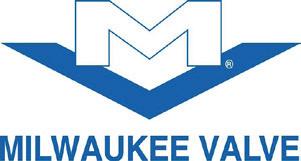




THANK YOU TO OUR SPONSORS Sponsored nationally by Sponsored locally by © Copyright 2024 American Heart Association, Inc., a 501(c)(3) not-for-profit. All rights reserved. Go Red for Women is a registered trademark of the Association. The Red Dress Design is a trademark of U.S. DHHS. Unauthorized use prohibited. 2024_MKE_BT_GRFW_Thx_Ad_8x4.875.indd 1 5/29/2024 9:19:38 AM 34 / BizTimes Milwaukee JUNE 10, 2024





At companies across southeast Wisconsin, notable executives are running businesses, navigating company restructurings, serving on boards, running marketing departments, and investing in growth throughout the region. The notable individuals profiled in these categories are nominated by their peers at work and in the community.
N OTA BLE W O ME N
I N SPORTS
NEW!!!
Recognizing the professional women who are scoring a larger role in the big leagues of local and national sports. These women are making a difference both on and off the field.
- Nomination Deadline: June 21, 2024Issue Date: July 29, 2024
Look for these Notable and Rising Stars nominations in 2024!
Notable Marketing Executives
Nomination deadline: July 12, 2024
Issue date: August 19, 2024
Notable Women in Wealth Management
Nomination deadline: August 2, 2024
Issue date: September 9, 2024
Notable Women in Manufacturing
Nomination deadline: August 30, 2024
Issue date: October 7, 2024
Notable Veterans Executives
Nomination deadline: October 4, 2024
Issue date: November 11, 2024
Notable Health Care Leaders
Nomination deadline: November 1, 2024
Issue date: December 9, 2024
To view this year’s winners and nominate, visit biztimes.com/notable
2024 roundup of the leaders making a difference throughout southeast Wisconsin.
Keep up with BizTimes’

HUMAN RESOURCES



DEI is dead
It’s time to embrace a new era of inclusive leadership
DEI IS DEAD and it’s time we buried it.
Before we write the obituary, let me clarify. I’m not suggesting we discard the principles of diversity, equity and inclusion (DEI) in the workplace altogether. Instead, it’s time for a perspective shift. The era of treating DEI as a standalone initiative, managed solely by HR or a committee, is over.
What’s needed now is a collective acknowledgment that fostering inclusion and belonging at work is not just a nice-to-have, it’s essential for business success. And this responsibility falls on everyone, particularly leaders who shape workplace culture.
MOVING BEYOND TRADITIONAL DEI
Success in today’s workplace depends on cultivating a culture where everyone feels they truly belong. Belonging is that fundamental human need for connection and acceptance that drives motivation and well-being. Research consistently shows that organizations with a strong sense of belonging outperform their peers. They’re more profitable, better at attracting and retaining top talent, and enhance their reputation by making culture a key differentiator for success.
But belonging isn’t just about business outcomes, it’s also crucial for well-being. Recent studies reveal that a sense of belonging acts as a shield against stress, boosting resilience and engagement. In a time when anxiety, burnout and loneliness are rampant at work, fostering belonging becomes vital.
Unfortunately, many organizations have scaled back on DEI efforts, citing reasons from budget constraints to fear of backlash. Yet, workforce diversity continues to grow, and the need to support employee well-being is more acute than ever. Workplaces are
becoming visibly diverse in terms of culture, gender identity, age and even work location (remote, in-person, hybrid). And employees are increasingly open about sharing hidden differences impacting their sense of belonging and well-being at work, from neurodiversity to mental health and from caregiving responsibilities to political ideology.
A NEW ERA OF LEADERSHIP
Given this evolving landscape, traditional DEI initiatives led solely by HR or designated committees fall short. Inclusion and belonging must infiltrate every aspect of employee engagement, particularly as employees seek authenticity when it comes to company values. Merely proclaiming a commitment to inclusion and belonging on the website won’t cut it anymore. Leaders must embody these values actively so that employees experience a genuinely inclusive workplace.
Gone are the days when leadership was solely about expertise and tenure. Inclusive leadership means bringing out the best in everyone – even people who are different from you – and using diversity as a catalyst for innovation and growth. It’s about applying a DEI lens to daily interactions and decision-making.
To demonstrate your commitment to DEI, here are three practical behaviors to practice:
1. Stay humble and self-aware: Recognize that everyone sees things differently due to their unique backgrounds and experiences. Instead of assuming everyone thinks like you, acknowledge that your own perspectives are shaped by who you are. Be open to diversity by noticing when you react emotionally to different opinions. Pause and think about why you feel that way before responding.
2. Be curious about others: Inclusive leadership isn’t about having all the answers. It’s about asking questions and being willing to learn from others. Show interest in your colleagues’ ideas, experiences and backgrounds by asking thoughtful questions and listening attentively. By showing genuine interest, you create a culture in which everyone feels valued and appreciated.
3. Seek to understand: Being an inclusive lead-
er doesn’t mean always agreeing with others. Disagreements are natural, but how you handle them matters. Instead of dismissing opposing views, strive to understand them better. Take time to listen to others without interrupting or trying to defend your own stance. By promoting mutual respect and understanding, you foster an environment in which diverse perspectives can thrive.
BEYOND BUZZWORDS
A diverse and inclusive workforce leads to better decision-making, increased innovation and improved problem solving – all critical for achieving organizational goals.
So, let’s bid farewell to the old notions of DEI and embrace a new era of inclusive leadership. This modern definition of leadership, rooted in DEI values, revolves around creating workplaces where every individual feels valued, connected and empowered to succeed. It’s time we bury the old DEI and build a future in which inclusion and belonging are not just a buzzwords, but felt in every interaction and applied to all decisions.


BETH RIDLEY
Beth Ridley is a leadership expert, workplace culture consultant and speaker. She combines more than 25 years of global leadership and management consulting experience with expertise in diversity and inclusion and positive psychology to help organizations transform their workplace culture. She can be reached at beth@ridleyconsulting.com.
36 / BizTimes Milwaukee JUNE 10, 2024 Strategies
Presented by:
The 18th BizExpo, held on May 22nd at the Brookfield Conference Center was a great success! Area professionals enhanced relationships, discovered new leads, closed deals, and garnered exposure for their businesses. Furthermore, creativity was sparked and insights were shared at the Elevate Your Leadership keynote session and 11 strategy seminars. To learn more, see pictures and watch videos from the seminars visit biztimes.com/bizexpo.
Thank you! for another great year.



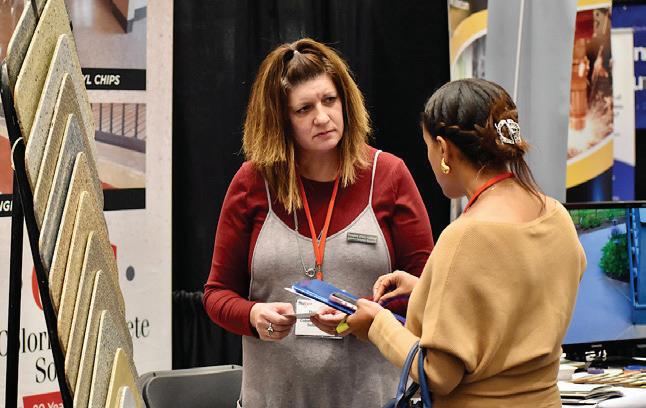
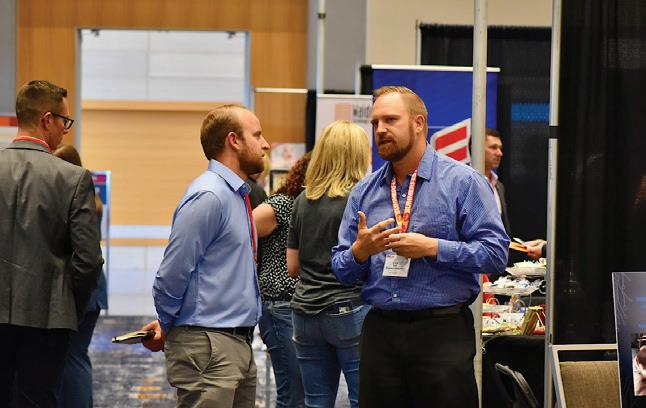


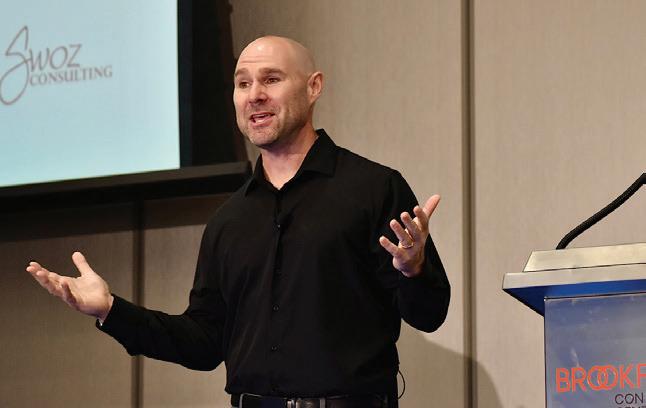
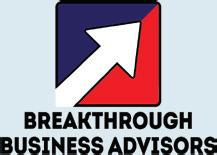




 Seminar Sponsors:
Keynote Sponsor:
Connectivity Sponsor: Lounge Sponsor: Partners:
Seminar Sponsors:
Keynote Sponsor:
Connectivity Sponsor: Lounge Sponsor: Partners:




A legacy... declined
Many in the next generation reluctant to take on family business obligation
MOST OF YOU reading this will not like the outcome. Many of you are probably expecting glowing reports on the state of family businesses, a very important economic driver in our nation. Well, if that is your hope, move to the next article.
Now, for those still with me, let me give you my track record. As a behavioristic phenomenologist, my background is to read the tea leaves of business and prognosticate the future. Less Nostradamus and more of a reporter on what I see. I avoid reading the opinions of others to more purely identify issues that are of my own selection and to avoid bias.
As my doctorate is on Chinese education, I called COVID-19 the pandemic months before it hit the U.S. In an article published in this very publication (The Four Horsemen of the Apocalypse) I correctly identified that colleges and universities were in trouble, that many schools would close due to financial problems and others would attempt to stay open while on shaky ground.
OK, now that I have established some credibility, here’s my proforma for family businesses:
There has been a quick reversal of fortunes related to family businesses within the past few years. Frequently I have been accused of being the Pied Piper of family business, and I still remain bullish on their importance to the economy and specifically the Wisconsin and local economy. So, what has changed? The next generation.
The generation of obligation, as I like to call the current owners, is fading fast. Some have instilled
in their children that same devotion to family, faith and country that generation obligation carried with them. But, the current generation – roughly late 20s to early 30s in age – carries few of the trappings of their preceding generations. Try giving this group the family silver, saved meticulously by great-grandparents, grandparents and parents to preserve a legacy, a reminder of the past hope for your future. It might as well be a doorstop as the generation next, as I call these 20-30-year-olds, don’t want it.
So, what does silver have to do with a family business?
This generation has the audacity to say ‘no.’ They have been doing it for many years. Their commitment to things that tie them to the past, things like going to church, patriotism and even marriage, are no longer part of the expectation. And from what many business owners are telling me – they would rather sell their business than turn it over to someone who doesn’t appreciate or who will run it into the ground – generation next is eschewing their business birthright in droves.
Further, the work is too hard and interferes with their expectations for quality of life.
Since everything these days is thrown at the feet of COVID, I too will take the easy route and suggest the pandemic had something to do with young adults identifying that family businesses were not all that they had hoped they would be. Generation obligation paved a good financial future for generation next but when their time is up, the latter will realize that staying home and working there is more fun, safe and flexible.
My fear is that there is a deeper phenomenon going on here, one that feeds a darker and more foreboding future. It appears to me that all the things we thought were good and established, gender, our democratic republic, and even the role of work in our lives is no longer law. Even the very definition of the word “family” and what should be considered family is up for debate.
If the very underpinning of what we long ago considered sacrosanct in society is now open for discussion, the sub-set of society – that being businesses and for our interest the family business – is now in trouble.
Can this trend be reversed? Yes, but that is not my prediction. I see generation next as being too self-absorbed and too independent to reverse this direction anytime soon. And maybe this generation next will usher in some positive replacements for the current structure that has survived in business for centuries, but I doubt it.
The dinosaur, the horse and buggy and the rotary phone will lead the family business into a final moment of a legacy denied for generation obligation.


DAVID BORST
David Borst, Ed.D., is a former dean of the Concordia University Wisconsin School of Business. He currently sits on several boards, teaches at the doctoral level and runs the Milwaukee Lutheran High School honors academy. He can be reached at david. borst@cuw.com.
38 / BizTimes Milwaukee JUNE 10, 2024 Strategies FAMILY BUSINESS
























Reserve a profile: Contact Linda Crawford (414) 336-7112 | advertise@biztimes.com To request a copy: biztimes.com/stuffrequest Call (414) 336-7100 STUFF Southeast Edition: Publishes in September 2024 • Reach thousands of students, parents and job-seekers throughout the region • Showcase your company as an employer of choice • Highlight your next-generation workforce Find out more at BIZTIMES.COM/STUFF A PRODUCT OF A GUIDE TO A SUPPLEMENT OF FALL 2023 DESIGNED, MADE AND BUILT IN SOUTHEASTERN WISCONSIN SEE PROFILES OF COMPANIES HIRING NOW ON PAGES 37-75 LEARN MORE ABOUT EXCITING CAREER OPPORTUNITIES could I make a career out of this? what is it? who makes it? STUFF BLOWN UP Baird Center page 14 COOL STUFF Made & Designed in Wisconsin pages 6-9 CHOOSING A TECH SCHOOL page 23 01-05 STUFF SE 2023 Front of Book.indd 1 8/25/23 3:45 PM A GUIDE TO DESIGNED, MADE AND BUILT IN SOUTHEASTERN WISCONSIN FALL 2024




if you feel like you have a brand problem, here are steps you can take to resolve this:
FOUR STEPS TO UPDATE YOUR BRAND
Update your brand
Steps to recruit top talent and build market share
CONSISTENT, HIGH-QUALITY marketing communications activities in lockstep with a solid brand build upon each other and make a lasting, positive impression. This impression is what creates brand understanding and trust in your brand so that you get more from each marketing dollar spent.
Plus, you have an easier time recruiting top talent. However, before you start updating your brand, how do you know it even needs an update? Maybe you just need to do more marketing. How to determine whether you have a marketing or brand problem:
» If you find you win most of the time based solely on price (lowered commissions, low interest rate, etc.), you have a brand problem.
» If in the eyes of your vendors, employees, clients and prospects there is a lack of complete clarity in why they should work with you, then you have a brand problem.
» If competitors are successful at chipping away at your market share, you have a brand problem.
» If your marketing/sales materials lack cohesive creative and messaging or competitive differentiation, you have a brand problem.
» If your creative is dry, you don’t have a good call to action or lack an impactful, well-rounded strategy for driving new leads and converting them, you have a marketing problem.
After evaluating yourself against these points,
1) Uncover any confusion about your brand in your own company. Conduct an internal brand assessment by surveying the entire leadership team, division managers and employees. The goal will be to learn how they define your brand, how they feel it stacks up in the competitive environment, how they feel you can improve and how they feel about you as an employer in a variety of areas like innovation, offerings, hiring and more.
If your internal audience reveals inconsistencies and internal cultural issues, this is a clear signal that action is needed. Your team needs to believe in you as a company. They need to be clear about why they work with you if you expect them to really be on your team. They need to know why it’s better to be on your team than another.
A strong brand will help tie good people to your company so that you can grow.
2) Uncover any external confusion about your brand. You may consider conducting an external assessment of your brand as well. You should survey your referral sources and current clients and select potential clients. The external survey will clearly demonstrate the effects of what is happening internally, positive and negative.
If you find there is confusion about what your brand is externally, this means your credibility in the marketplace is lacking and could well be holding you back.
3) Eliminate any marketplace confusion about your brand once it’s been uncovered. The process for eliminating this confusion begins with taking a deep dive into your purpose as a company. Ask yourself why you started your company and thought you’d be successful, what you stand for and against, who your client is (and is not), what you want to become as a company and what you ultimately mean to your audience in the long run.
This exercise will help you hone your key marketing messages, unique selling points and your market positioning. Messages delivered and ful-
filled consistently give you an edge on your competition that you can develop further to set yourself apart and grow.
Remember that consistency is key because your messages have a cumulative effect and therefore help build brand equity and understanding.
4) Review all marketing pieces. These pieces should include all digital and printed assets like emails, direct mailers, presentation materials, website, display ads – anything and everything with a message on it all the way down to coffee cups and pens. You want to make sure your messaging, positioning and creative look and feel is all reflective of who you are and how you wish to present yourself as a company.
Your color pallets, fonts, messaging, ad layouts, tone, etc. should all match so people recognize what you look like.
Recruiting top talent and increasing your market share can run much deeper than your marketing tactics and strategy. These important goals require a strong brand foundation. Otherwise, your money isn’t going as far as it could to take you to the next level as a company.















SCOTT SEROKA
Scott Seroka, the president of Brookfieldbased Seroka Industrial Branding, is an entrepreneur, consultant, trainer, and mentor. He can be reached at (414) 628-4547.

40 / BizTimes Milwaukee JUNE 10, 2024 Strategies MARKETING


Tip Sheet

Advice for navigating generational succession
The process of passing leadership or ownership of a family business to the next generation can be fraught with challenges. However, succession is necessary to the long-term health and viability of the business, so leaders must “navigate complex family dynamics in the immediate term to set themselves up for success in the distant future,” according to a recent Kellogg Insight article referencing advice from Matt Allen, a professor
at Kellogg School of Management. Allen provides four tips for family businesses making generational transitions:
1.
CULTIVATE EMOTIONAL TIES
Encouraging the next generation to build experience before taking up a leadership role within a family-owned firm is important, but it should be balanced with a foundation of personal connection to the business, creating incentive to return. Allen recommends family retreats, factory tours, educational events as well as summer jobs or internships to build familiarity early on.
2. DON’T DELAY PLANNING
It’s never too early to start planning for a leadership transition.
“If everyone knows a decade in advance who will take the helm, the entire organization can prepare accordingly,” says Allen.
Beyond company-wide transparency, ad-
vanced planning will also allow the new leader to prepare and build rapport with employees and customers.
3. DON’T DELAY THE TRANSITION
Timing is key. If the next leader is ready to take the lead, the outgoing leader shouldn’t drag their feet walking out the door.
“Too many family leaders hold on until it’s too late, and this can be a major source of frustration to subsequent leaders,” Allen says.
4.
STAY INNOVATIVE
Avoid the natural tendency to remain unchanged. New shareholders may be more interested in protecting their inherited assets than taking risks, but as Allen notes, “leadership transitions are another chance to adapt to significant evolutions in the market – because, in some cases, the next generation might have to push the company in a new direction altogether.”
TELL YOUR STORY YOUR WAY
In these upcoming Thought Leadership pages

July 29
Issue


Feature your industry leader and share their insights and perspectives. Use this space to talk about your company’s latest news, innovations and successes.
Spacereservation:July10


HOW
August
19 Issue
Highlight one of your organization’s she-roes by sharing her leadership story and communicate your company perspectives and successes in this uniquely impactful advertising section.
Space reservation: July 31
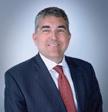



September 9 Issue
Share your expertise and best practices with our high-net worth readers in this special section designed to drive your success and solidify their bottom line today and in the future.
Space reservation: August 21
biztimes.com / 41
For more information contact Linda Crawford at (414) 336-7112 or advertise@biztimes.com
Thought Leadership placements include digital posts, reprints and a framed plaque.
SHE LEADS
WEALTH MANAGEMENT Q&A
CEO Q&A
Reserve your Thought Leadership pages today! KEITH WALZ President & CEO, KDV Label, LLC TAKE ADVANTAGE OF TIMES LIKE THESE Joe Maier, SVP Director Wealth Strategy JD, CPA, Johnson Financial Group Nina V.A. Johnson senior vice president consumer and business banking for Affairs and Community Reinvestment Act (CRA) Officer for mother two sons and daughter Doris Newby Armstrong; BUILDING SYNERGIES THROUGH SERVANT LEADERSHIP







42 / BizTimes Milwaukee JUNE 10, 2024 BizConnections AWARD WINNING LEADERS IN ENVIRONMENTAL SUSTAINABILITY PROGRAMS AND WASTE MANAGEMENTS SOLUTIONS www.esrr.com Germantown, WI | (262) 790-2500 | info@enviro-safe.com Wisconsin’s Newest Licensed Hazardous Waste Treatment, Storage and Disposal Facility • Great Customer Service • Continuous Growth • Transportation Services • Family Owned & Operated Since 2002 • Sustainability Programs • Compliance Services (WDNR, EPA & DOT) Contact Pavlic Vending to get your market today! Variety, convenience and healthy foods… all at no cost to your organization! 262.574.1600 | www.pavlicvending.com MARKETPLACE FRIESIAN HERD EXPERIENCES Where horses help heal people Sign-up now for private riding lessons! Tours Horses for Sale Corporate Events Foaling Experiences Commercial Photo Shoots Herd Life Coaching for Adults Equine Facilitating for Herd Healing 262-510-8963 friesianherd@yahoo.com friesianherdexperiences.com GET THE WORD OUT! News? Press Releases? Awards? Show them off in BizTimes’ new BizUpdates section. Submit your company news at biztimes.com/bizconnect SHARE YOUR PRODUCT/SERVICE OR ADD YOUR BUSINESS CARD ADVERTISE IN THE MARKETPLACE SECTION TODAY! Contact Advertising Sales for rates and specs. advertise@biztimes.com or 414-336-7112
ARCHITECTURE

Kristin Taormina, Project Development Engineer, joins Mead & Hunt’s EPC Team
Bringing more than 20 years of environmental engineering experience with specialization in wastewater solutions, Kristin develops treatment systems solutions that leverage anaerobic, aerobic, pretreatment, and tertiary treatment to produce high-quality effluent. From feasibility studies to EPC implementation, she assists facilities in determining what is needed to meet permit regulations, hit sustainability targets, address production growth, and update aging infrastructure. Driving growth for Mead & Hunt’s wastewater solutions, Kristin is based in Mead & Hunt’s West Allis office.

FINANCIAL SERVICES

Operose Advisors Welcomes PJ Weyer
Operose Advisors is excited to welcome PJ Weyer to the team as a Director. PJ brings eight years of industry experience in investments and servicing client relationships.
MANUFACTURING

Wenthe-Davidson Engineering Co Appoints Rob Ewing as President Wenthe-Davidson Engineering Co announces the promotion of Rob Ewing to President. Rob joined WentheDavidson in 2021. With an MBA from Cardinal Stritch University and over 30 years of manufacturing experience, Rob brings a wealth of knowledge to his new role. “Rob is an excellent fit to carry on our 83 years of tradition and culture,” said CEO and Board Chairman Frederick M. Anderson. “I am confident that Rob will lead us to achieve even more in the next 83 years.” Located in New Berlin, Wenthe-Davidson is a custom metal fabricator that has been employee-owned since 1984.

FINANCIAL SERVICES

RitzHolman CPAs Welcomes Peter Van Ermen, CPA as Prinicipal
Peter Van Ermen, CPA, has joined RitzHolman CPAs as a Principal on the firms’ tax team. He has over 35 years of experience with extensive knowledge in providing compilation, review, and tax services to closely-held businesses and individuals.

FINANCIAL SERVICES
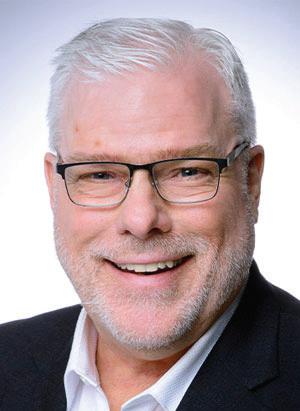
Johnson Financial Group Hires David Dauchy as SVPSenior Portfolio Manager
JFG is pleased to announce the addition of David Dauchy to its $10B Wealth Management division. David will join the Portfolio Management team led by Dominic Ceci. Prior to his new role, David held a leadership position at PNC for over 13 years.
LEGAL SERVICES

von Briesen & Roper, s.c. welcomes Shareholder Kristen Nelson to its Milwaukee office.
As a member of the Health Law and Government Enforcement and Internal Investigations Sections, she focuses her practice on professional license defense including health care licensure, Medicare/Medicaid fraud, government investigations and enforcement actions and professional liability.
LEGAL SERVICES

von Briesen & Roper, s.c. welcomes Steven Beckham to the Team
Steve joins the Litigation & Risk Management Group focusing his practice on commercial and business litigation, insurance coverage and liability defense. He is a member of the State Bar of Wisconsin and the Milwaukee Bar Association.
FINANCIAL SERVICES

Johnson Financial Group Hires Brad Mazola as Senior Vice President –Wealth Advisor
JFG is pleased to announce the addition of Brad Mazola to its $10B Wealth Management division. Brad will join the Wealth Advisory team led by Dan Wilson. Prior to his new role, Brad held a leadership position at PNC for over 13 years.
LEGAL SERVICES

von Briesen & Roper, s.c. Welcomes Reid Hazelton to its Business Practice Group
Reid focuses his practice on mergers and acquisitions, business and corporate issues and Corporate Transparency Act compliance. Prior to his legal career, Reid worked in the aerospace and automotive industries and co-founded a branded luxury goods manufacturing company.
MANUFACTURING

Sheboygan Paint Company Announces New Chairman of the Board
Sheboygan Paint Company is pleased to announce the succession of the Chairman of the Board from Charlie Malingowski to Jay Brownrigg. This is a final step of a multi-year phased transition of management and ownership from fourth to fifth generation.
biztimes.com / 43
BIZ PEOPLE Advertising Section: New Hires, Promotions and Board Appointments BizPeople Highlight a new hire, promotion or accolade and share it with readers throughout southeastern Wisconsin. Visit biztimes.com/bizconnect to submit your news!




Angela Roach inspires confidence as Girl Scout volunteer
By Cara Spoto, staff writer
WHEN PEOPLE think about Girl Scouts, cookies and crafts often come to mind.
To longtime Girl Scout volunteer Angela Roach, that’s just one ingredient in a recipe that produces so much more than sales, sashes and badges. It’s why Roach, a senior manager at Milwaukee-based Fiserv, has been a volunteer with the Girl Scouts of Wisconsin Southeast for the past 15 years.
“What I’ve always really enjoyed about Girl Scouts is there’s no requirements regarding what you do or don’t have to do to be a Girl Scout,” Roach said. “If you’re not interested in all the arts and crafts and you want to go out in the woods and fend for yourself and have a survival weekend, you can do that. If you
just want to play with glitter all day or make stuff, you can do that, too. The opportunities are almost limitless.”
A Girl Scout growing up, Roach got reinvolved with the organization the way a lot of parents do: she signed up to lead her then-third grade daughter’s troop.
That soon led Roach to take on more responsibilities with the organization. She became a school coordinator, setting up open house events for her daughter’s school in an effort to get more troops started and more girls engaged.
From there, she became a service unit leader for Milwaukee’s northwest side, organizing quarterly meetings to help support newer troop leaders in the
region. Roach stayed in that role for five years, even after joining Fiserv in 2011.
These days, Roach has pared back some of her volunteer activities, focusing on her troop –currently comprised of two high school juniors and a graduating senior – and running a distribution site for the organization’s annual cookie and candy sales. Roach’s daughter, now 23, is an adult member of Girl Scouts.
“I told myself that when my daughter was a senior, that I’d be done after that year,” said Roach. “I kind of have a hard time saying ‘no.’”
As the girls have grown up, Roach has turned her focus to fostering leadership skills, allowing the troop to plan their own
meetings and activities. They’ve also volunteered at events for younger Girl Scouts.
“They might not be completing a badge or getting an award, but they got to learn about new things while they were teaching younger girls,” she said.
Her love for “seeing girls break out of their shell” is a big part of why she’s stayed with the organization for so long.
“None of the girls in my current troop knew each other before joining, and it turned out to be the best experience ever because they just clicked automatically,” Roach said. “By being a troop leader, you can really help girls blossom into the women that they’re going to become.” ■


44 / BizTimes Milwaukee JUNE 10, 2024 BizConnections
Angela Roach Senior manager - financial sales analysis Fiserv
Nonprofit served: Girl Scouts of Wisconsin Southeast Service provided: Troop leader, product distribution, events volunteer
PAY IT FORWARD
LILA ARYAN PHOTOGRAPHY
PRESENTS:

July 25, 2024
2:30 – 6:00pm
2:30 PM Registration & Networking
3:00-4:30 PM Awards Program
4:30-6:00 PM Networking Reception
Italian Community Center
Join BizTimes Media in recognizing the region’s top nonprofits and corporate citizens at the eleventh annual 2024 Nonprofit Excellence Awards. These nonprofits and corporate citizens go above and beyond to create a lasting impact in the lives of those they serve and have truly made a difference in our community. You will be inspired by thoughtprovoking and heartfelt acceptance speeches from influential figures who have dedicated their lives to social change and community development. The excitement doesn’t end with the awards ceremony; it continues with an exclusive networking and cocktail reception. We invite you to stay and mingle with the finalists, honorees, and fellow community leaders in an atmosphere of camaraderie and celebration.
2024 Award Finalists:
Corporate Citizenship Awards
Corporate Citizen of the Year
• Generac
Hydrite Chemical Co.
• Kohl’s
WaterStone Bank
Corporate Volunteer of the Year
John Kissinger, GRAEF
• Robert Landwehr
Max Stephenson, Gimbel, Reilly, Guerin & Brown LLP
• Judie Taylor, DUECO
In-Kind Supporter
MGIC
• Source TEN
Next Generation Leadership
• Nadiyah Johnson, Jet Constellations
Anthony Mlachnik, NorthRock Partners
• Monica Nichol, Baird Wealth
Tim Patterson, Foley & Lardner LLP
Lifetime Achievement
• Donald and Donna Baumgartner
Nonprofit Awards
Nonprofit Collaboration of the Year

• Down Syndrome Association of Wisconsin, Wisconsin Economic Development Corp., Department of Workforce Development, Islands of Brilliance, Disability:IN Wisconsin, Engauge Workforce Solutions and MATC
St. Francis Children’s Center, Penfield Children’s Center and Curative Care Network
• WRTP|BIG STEP, Milwaukee Building Trades Council, MPS, Southwest Milwaukee Trades Consortium and Employ Milwaukee
Nonprofit Executive of the Year
• Chad Bauman, Milwaukee Repertory Theater
Andi Elliott, Community Advocates
• Rob Henken, Wisconsin Policy Forum
Sherrie Tussler, Hunger Task Force
Nonprofit Organization of the Year (Large)
Milwaukee Ballet
• Ronald McDonald House Charities Eastern Wisconsin
• Wisconsin Lutheran Child & Family Service
Nonprofit Organization of the Year (Small)
• All Hands Boatworks
HPGM
• Journey21
Keep Greater Milwaukee Beautiful
Social Enterprise
Food For Health
• Martin Luther King Economic Development Corp.

SPONSOR:

2024
Register today! • biztimes.com/npawards
GLANCE AT YESTERYEAR

VOLUME 30, NUMBER 4 | JUNE 10, 2024
126 N. Jefferson St., Suite 403, Milwaukee, WI 53202-6120
PHONE: 414-277-8181 FAX: 414-277-8191
WEBSITE: www.biztimes.com
CIRCULATION: 414-336-7100 | circulation@biztimes.com


Unit Forgings building in 1919


This photo shows the Unit Drop Forge Co. building at 1903 S. 62nd St. in West Allis as it existed in 1919, a year after the company was founded. While the manufacturer has expanded and added on over the years, the building still exists with little change from the past. Shortly after its founding, the business was acquired by Unit Corporation of America. Over the years, it was part of Fuller Manufacturing and Eaton Corp., until Eaton divested it in the late 1970s. New private ownership took over in 1979 and surviving members of the group remain in place today. The company makes a variety of forged parts for the construction, off-highway, oil and gas, military, mining, forestry, agriculture, railroad and energy markets.
— Photo courtesy of Unit Drop Forge Co. Submit your company’s historic photos at biztimes.com/glance
It takes a village
BASEBALL LEGEND YOGI BERRA, perhaps known more for his malapropisms than his three MVP awards, once said about a popular St. Louis restaurant, “Nobody goes there anymore. It’s too crowded.”
I love to think about that quote when people complain about developments creating too much density, too much traffic and making an area too busy.
The village area of the city of Wauwatosa is one of my favorite parts of southeastern Wisconsin. Located along the Menomonee River and adjacent to Hart Park, it’s a dense, historic and walkable area full of cool restaurants and shops.
With all of that going for it, the Wauwatosa village is an attractive place to live, and developers are taking notice. Two significant apartment developments are planned in the area.
Three Leaf Partners plans to build a 153-unit apartment complex at the site of St. Bernard Congregation (which is consolidating with a sister parish) and the former Wauwatosa Catholic
School (which closed last year), near the intersection of Wauwatosa and Hardwood Avenues.
Mandel Group plans to build a 157-unit apartment complex at the Blanchard Street public parking lot at 7470 Blanchard St.
These developments should be embraced and considered an exciting opportunity to enhance an already vibrant area. But instead, they have been met with considerable pushback from residents, including some of the common issues raised about dense development, such as parking and traffic. But even some business owners in the Wauwatosa village area have said they are worried increased population density in the area will make it harder for their customers to find parking and that the large construction projects will create headaches and discourage customers from shopping in the area.
But increased population density in the Wauwatosa village will also bring more customers within walking distance of the businesses in the area. Every store and restaurant there should seize that opportunity and the growth of the area should help businesses there thrive. A thriving, vibrant village business district is something all Wauwatosa residents should appreciate.
Wauwatosa needs this development, and it
ADVERTISING: 414-336-7112 | advertising@biztimes.com
EDITORIAL: 414-336-7120 | andrew.weiland@biztimes.com
REPRINTS: 414-336-7100 | reprints@biztimes.com
PUBLISHER / OWNER
Dan Meyer dan.meyer@biztimes.com
DIRECTOR OF OPERATIONS
Mary Ernst mary.ernst@biztimes.com
COMMUNITY
ENGAGEMENT / OWNER
Kate Meyer kate.meyer@biztimes.com
EDITORIAL
EDITOR
Andrew Weiland andrew.weiland@biztimes.com
MANAGING EDITOR
Arthur Thomas arthur.thomas@biztimes.com
ASSOCIATE EDITOR
Maredithe Meyer maredithe.meyer@biztimes.com
REPORTER
Ashley Smart ashley.smart@biztimes.com
REPORTER
Cara Spoto cara.spoto@biztimes.com
REPORTER
Hunter Turpin hunter.turpin@biztimes.com
SALES & MARKETING
DIRECTOR OF SALES
Linda Crawford linda.crawford@biztimes.com
SENIOR ACCOUNT EXECUTIVE
Christie Ubl christie.ubl@biztimes.com
ACCOUNT EXECUTIVE
Robin Briese
robin.briese@biztimes.com
ACCOUNT EXECUTIVE
Paddy Kieckhefer
paddy.kieckhefer@biztimes.com
ACCOUNT EXECUTIVE
Christy Peterson christy.peterson@biztimes.com
SALES ADMIN
Shannon Whiting shannon.whiting@biztimes.com
ADMINISTRATION
ADMINISTRATIVE COORDINATOR
Sue Herzog sue.herzog@biztimes.com
AUDIENCE DEVELOPMENT
ASSOCIATE/CIRCULATION
Derik Sneide derik.sneide@biztimes.com
PRODUCTION & DESIGN
SENIOR GRAPHIC DESIGNER Alex Schneider alex.schneider@biztimes.com
Independent & Locally Owned — Founded 1995 —
needs more population growth. The city’s population grew 4.3% from 2010 to 2020, but has fallen 2.8% since 2020, according to U.S. Census Bureau estimates.
Despite limited population growth in the metro Milwaukee area, the region’s apartment market is one of the tightest in the nation, according to reports from RentCafe and Forbes. The entire region needs more apartment development, including Wauwatosa.
The good news is that the Mandel Group project has finally received initial approvals. The Three Leaf project already complies with zoning and the developer was asked to improve the design, which is reasonable, especially for an important historic district.
With projects like these – and hopefully more to come – the Wauwatosa village is only going to become a better place to live, work and play. ■
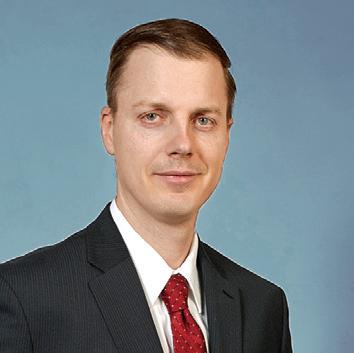 ANDREW WEILAND EDITOR
ANDREW WEILAND EDITOR
/ 414-336-7120 / andrew.weiland@biztimes.com / @AndrewWeiland
BizConnections
COMMENTARY
46 / BizTimes Milwaukee JUNE 10, 2024



5 MINUTES WITH…
JOE HAMANN
Executive director, Connected Systems Institute at UW-Milwaukee
JOE HAMANN has 17 years of experience in materials engineering, having served as senior director of engineering for the Industrial Components Division at Milwaukee-based Regal Rexnord prior to taking the lead at UW-Milwaukee’s Connected Systems Institute last November. Now, Hamann is heading up a new program housed within the CSI: a manufacturing-focused AI Co-Innovation Lab created in partnership with Microsoft and TitletownTech. The new lab is part of Microsoft’s planned $3.3 billion investment to build a data center campus in Mount Pleasant. In a recent interview with BizTimes Milwaukee reporter Ashley Smart, Hamann shared what will make the new co-innovation lab unique.
EXPANDING AN EXISTING RELATIONSHIP
UWM and Microsoft have a years-long relationship. The corporation’s chief executive officer Satya Nadella earned his master’s degree in computer science from the school in 1990. UWM launched its CSI in 2017 in partnership with Microsoft, WEDC and Milwaukee-based manufacturer Rockwell Automation, but the existing relationship between UWM and Microsoft was not the only reason the school was selected to house the new AI Co-Innovation Lab.
“This really goes beyond UWM,” said Hamann. “It’s looking at things from a macro view. We have a high density of manufacturing companies in the Midwest. Part of the concept with these AI Co-Innovation Labs is to create a space for industry to come and learn and experience (technology).”
WHAT THE LAB WILL DO

Microsoft’s six existing Co-Innovation Labs – located in Redmond, Washington; San Francisco, California; Munich, Germany; Shanghai, China; Kobe, Japan; and Montevideo, Uruguay – give businesses a space to develop, build and test their AI-centered solutions. This will be Microsoft’s first Co-Innovation Lab dedicated to the manufacturing industry. It will have three full-time and two part-time employees and will help businesses with everything from early-stage testing and design evaluation that can be done in a single day, to more focused programs that run three to six weeks.
Renovations to the space, including a 1,000-square-foot addition, are anticipated to begin within the next three months. A new experience center where manufacturers can experience technology firsthand is also being built.
“We’re not just using technology for technology’s sake,” said Hamann. “We’re using it to address known business problems.”
LONG-LASTING IMPACT
The new AI Co-Innovation lab will have lasting impacts on many, said Hamman. UWM professors will have better opportunities to connect their research interests to industry, and students in the lab will gain invaluable hands-on experience through more than 60 industry visits each year. Microsoft also provides UWM with access to its Azure cloud computing platform, allowing the university to do its AI work in the cloud.
Once complete, the AI Co-Innovation Lab will give Wisconsin’s business community an opportunity to bolster its entrepreneurial thinking when it comes to technology and manufacturing, said Hamann.
“This could become a destination for (entrepreneurs) to come in and incubate their ideas,” he said. ■
biztimes.com / 47
A look inside the Connected Systems Institute at UW-Milwaukee
Hamann




















































































 HUNTER TURPIN Reporter
HUNTER TURPIN Reporter






































































































 MARK DAVIS FOUNDER, ARTISTIC DIRECTOR AND INSTRUCTOR
MILWAUKEE JAZZ INSTITUTE
MARK DAVIS FOUNDER, ARTISTIC DIRECTOR AND INSTRUCTOR
MILWAUKEE JAZZ INSTITUTE




 MICHAEL PINK ARTISTIC DIRECTOR MILWAUKEE BALLET
MICHAEL PINK ARTISTIC DIRECTOR MILWAUKEE BALLET
 KEVIN GIGLINTO PRESIDENT AND CEO
KEVIN GIGLINTO PRESIDENT AND CEO








 SUZAN FETE | LISA RASMUSSAN ARTISTIC DIRECTOR | MANAGING DIRECTOR
SUZAN FETE | LISA RASMUSSAN ARTISTIC DIRECTOR | MANAGING DIRECTOR





































 CODY ESTLE
ARTISTIC DIRECTOR NEXT ACT THEATRE
CODY ESTLE
ARTISTIC DIRECTOR NEXT ACT THEATRE

 CARA OGBURN
ARTISTIC DIRECTOR
CARA OGBURN
ARTISTIC DIRECTOR


































 Seminar Sponsors:
Keynote Sponsor:
Connectivity Sponsor: Lounge Sponsor: Partners:
Seminar Sponsors:
Keynote Sponsor:
Connectivity Sponsor: Lounge Sponsor: Partners:























































































 ANDREW WEILAND EDITOR
ANDREW WEILAND EDITOR



